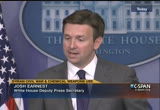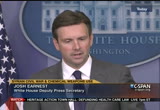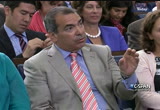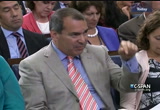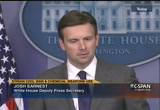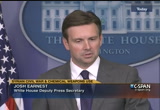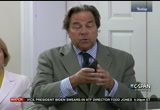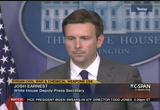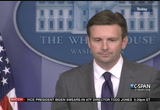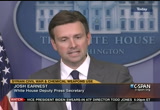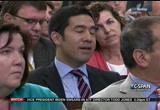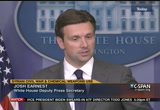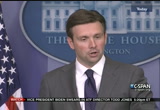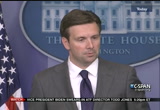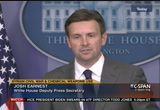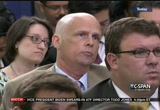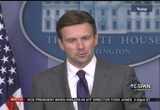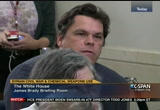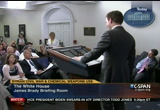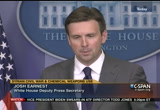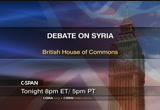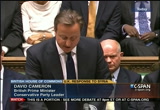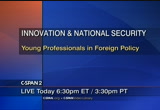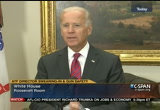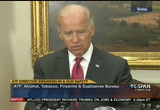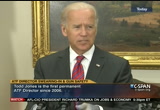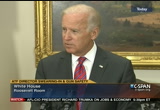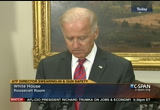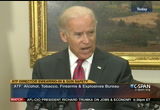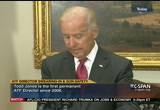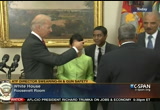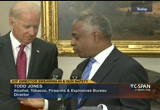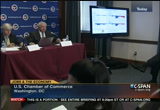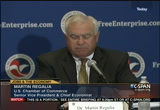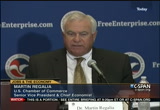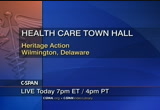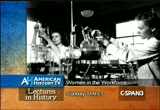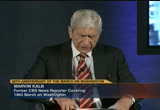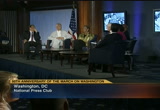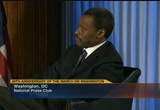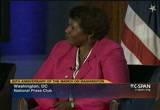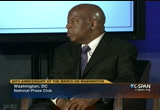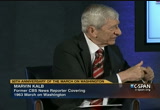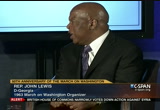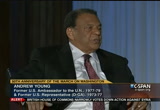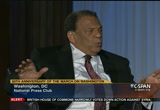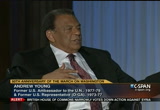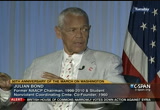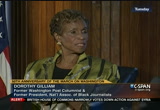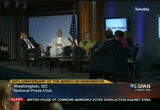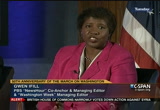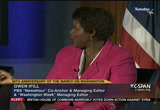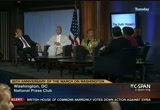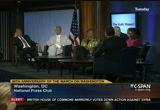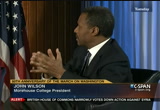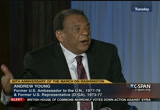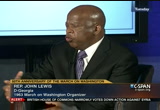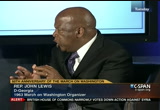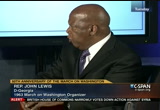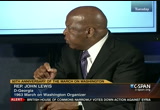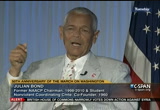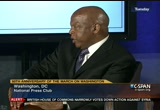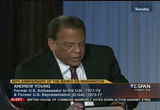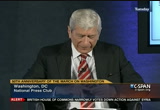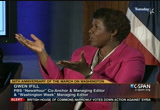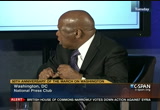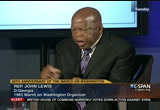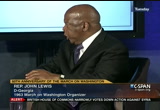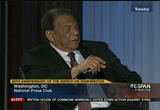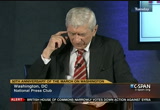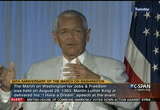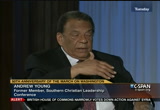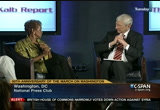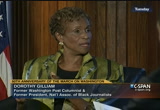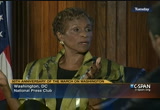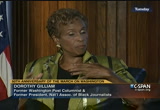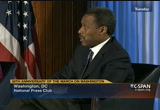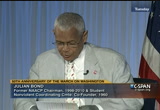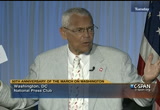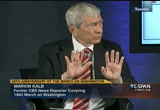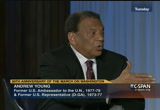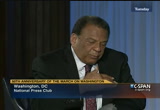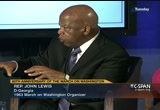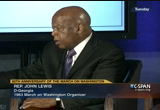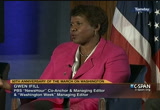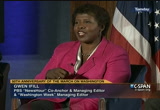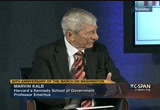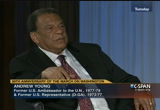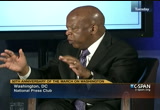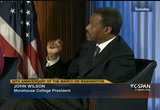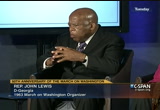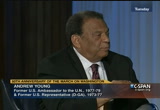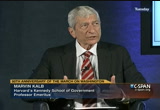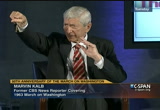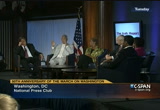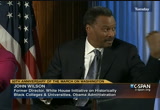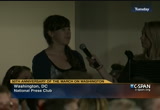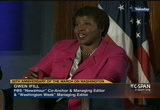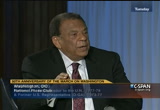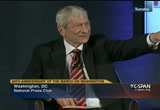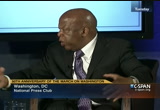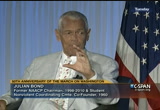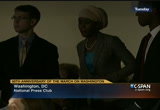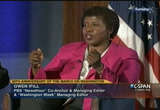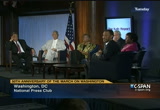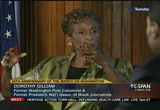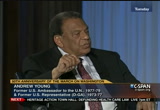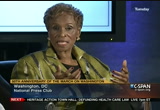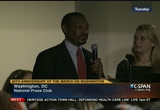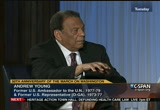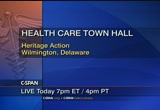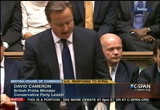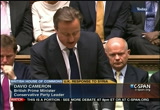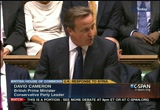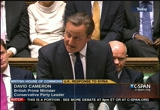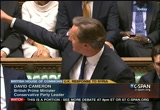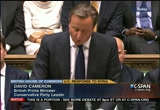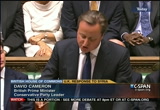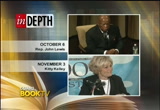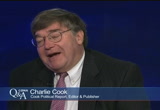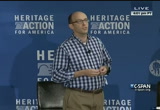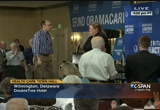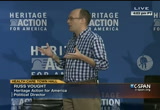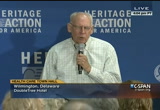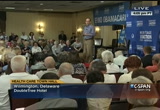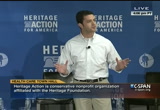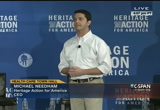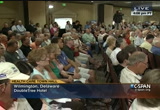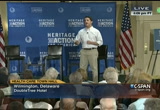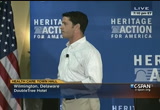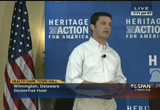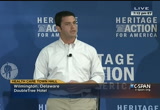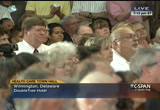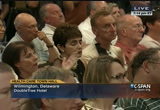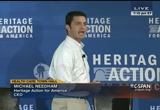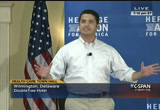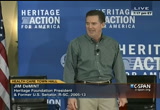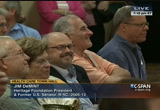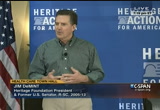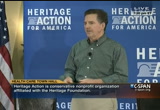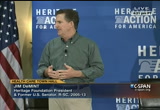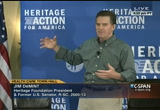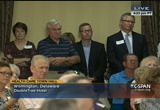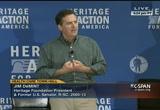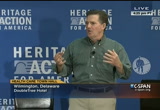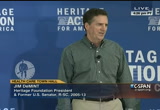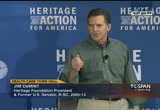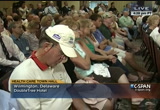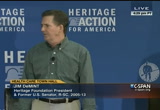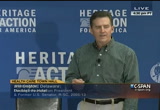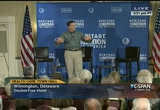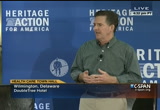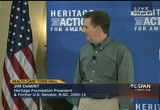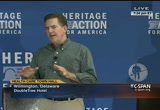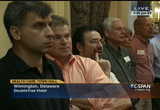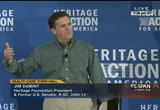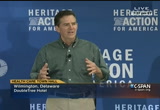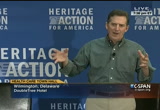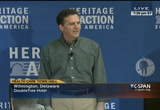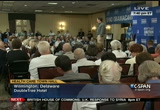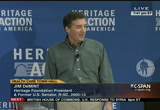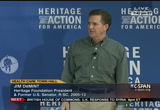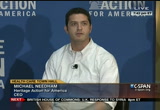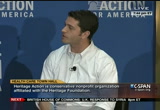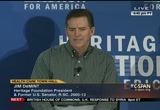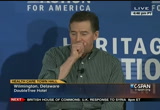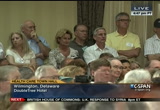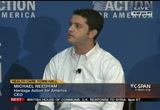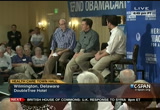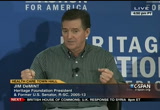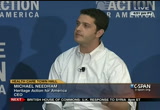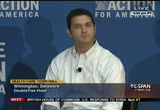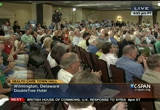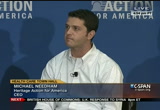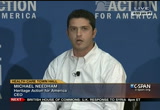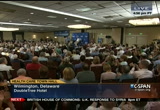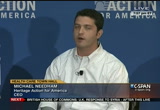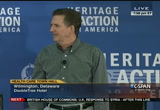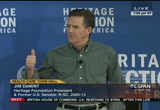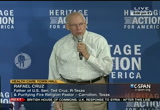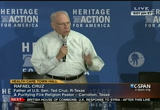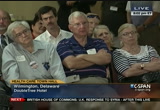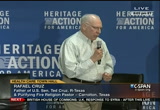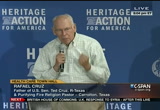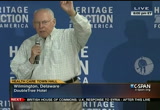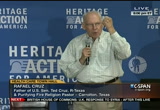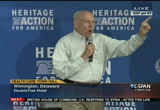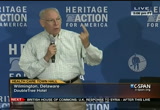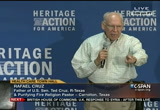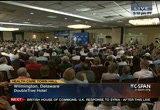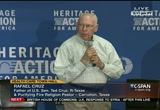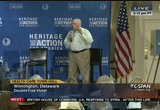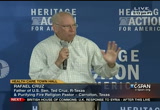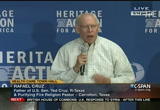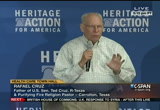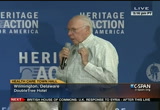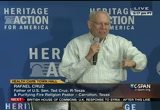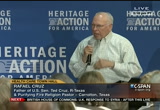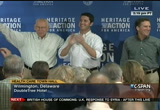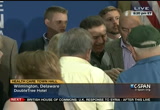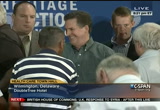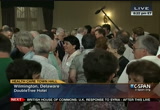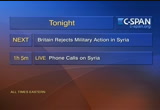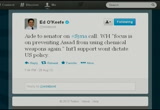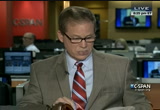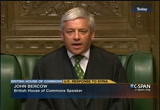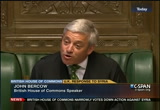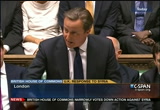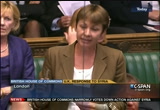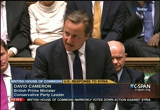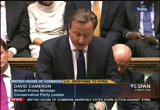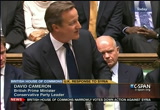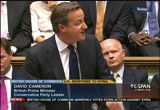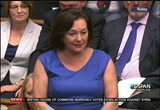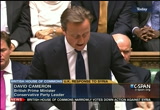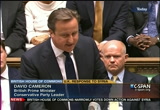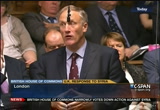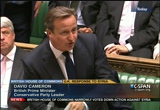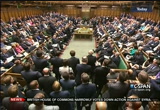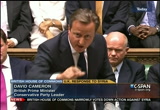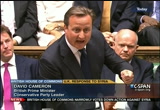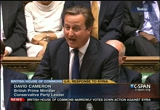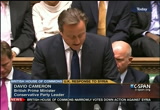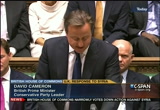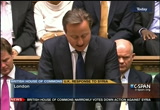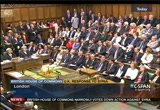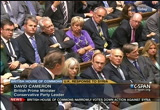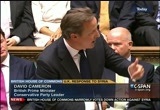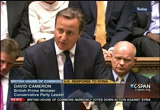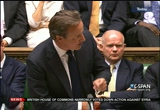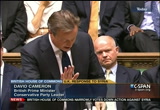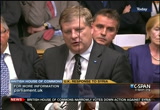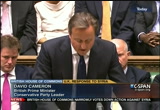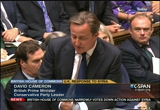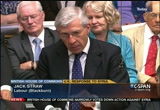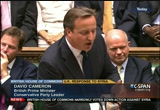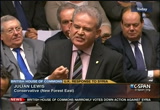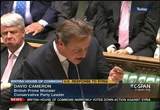tv U.S. House of Representatives CSPAN August 29, 2013 5:00pm-9:01pm EDT
5:00 pm
justification is required to substantiate or to back up that decision, we will produce one on our own. >> does the jay carney statement -- when i asked whether or not syria has control of all its chemical weapons, whether the rebels have any chemical weapons, he said that they are incomplete control and they have no evidence that the rebels had , does that depots statement still hold today in light of what the story is saying? >> i don't see any reason.not see any there is no evidence that rebels had used chemical weapons or have access to the delivery
5:01 pm
systems required to carry out the attacks we saw on august 21. >> it appears sources in your government are saying -- talk to us anonymously all the time. what you say when i -- that you place more credibility in on- record statements. that is all i am directing you to write now. >> in light of the anonymous sources that are in your government, what they are saying, they do not know where some of these weapons are, does jay carney's statement still hold that you do know? what we will say is have said before, which is we have not seen credible evidence
5:02 pm
or credible reports that the opposition has used chemical weapons or that they have the capability of using the kind of chemical weapons that we saw used in an attack outside damascus on august 21. hasou also said that syria not lost control or had been overrun in any way, or that the chemical stockpiles had been overrun in any way? >> i see no reason to differ with that. attack chemical weapon , asyria a direct threat direct and imminent threat to the security of this country within our borders, the united states? >> the president has said that the clear violation of international norm against the use of chemical weapons most of the core national security
5:03 pm
interest of the united states. there are any reasons for that. it includes the large stockpiles of weapons the assad regime maintains, the volatility of the country and the region, the relationships we have with other countries in the region, including our allies like turkey and israel, and our close partners and friends like jordan, it also involves the facilities the united states maintains in the region. there are a number of ways in which the violation of this clear international norm has an impact on our core national security interests. i will pointthing out, it is worth repeating, it is also important for other totalitarian dictators around theworld who are watching circumstances unfold in syria and the international communit'' reaction to understand that the international community will not tolerate the use of chemical
5:04 pm
weapons, that that international norm is in viable, and any violation of that norm has consequences. -- but even this president acknowledges -- a warring country, it is important -- you say impact -- some argue that is different than having a direct and imminent threat against the united states rather than having an impact on its allies or international norm. those are different things of concern, but are they as serious as direct and imminent threats to our country? >> i will not parse the more.ent's words any i have done my best to describe all the national interests that the president believes are important, that he is elected to protect that are at stake here. that is the appropriate response to this circumstance, what this president is currently weighing. >> the cautious approach the
5:05 pm
administration is taking here, does it reflect a concern that any response may tip the leadership outs in serious toward someone that may not in fact may be worse than i thought assad and stability in the region? >> i will say the volatility of the region is a factor as we -- ourr all of the sponsor, the reason the president believes the situation merits a response, because it is such a volatile region. that volatility is something that is considered as the situation continues. >> [indiscernible] what is a volatility and is known might be better than what is unknown? >> is that a question? >> [indiscernible]
5:06 pm
i will pass it along. >> senator mendez this morning said under the war powers act, iffar as he is concerned, the president goes ahead with military action for the first 60 days. after 60 days, he must come to congress for authorization. does the president agree with that? position toin a offer iran own specific analysis of the war powers act from here. the president believes at this stage what is a critically important is robust consultation with congress, and that is what we have been engaged on since the first day of this event, and something that we will continue in the days and weeks ahead. >> david axelrod says he was sure the president would go on tv to the american people once he makes the decision. can you confirm? presuppose want to
5:07 pm
what that decision is, but the president believes it is important to -- as evidenced by the fact we have promised to make public and intelligence assets in of the services -- of the services is here -- the president believes it is import to have a dialogue the public, about the decisions the president makes, as particular as weighty as the decisions here are. you can rest assure knowing the president knows that communicating with the public as he approaches this situation is a top priority. "the washington post" published something online that u.s.,s details about the that the budget has grown enormously since 9/11, that the
5:08 pm
cia is far bigger than outside experts had estimated, that the u.s. is involved in new cyber programs to attack other programs in countries. this information has never been released despite efforts from outside folks. does the president believe this is helpful now and the current climate to have discussion about the details about how the u.s. is spending its money in these departments to get a better understanding, as he said, make the public comfortable with how this money is being spayed and what type of programs are being used? -- that storyhed was published since i walked out here. i'm not in a position to comment on a specific story. the president believes that strengthening public confidence in these programs is important to the success of these programs. there is little debate about the
5:09 pm
fact these programs are critical to our national security, that they have made a role in protecting the homeland and disrupting plots by those who are looking to perpetuate america and against our interests. the president is committed to strengthening these programs. he has put forth ideas to strengthen these organs. he is following through on promises of reforms. i terms of specific reports, am not in a position to comment on it because i have not read it. >> is the white house aware of out?toruy coming were you guys aware, and i'm curious if you have concerns about this kind of information being out, or are you comfortable -- >> it is hard for me to a
5:10 pm
comment on the information in the report. i did not talk to the journalist or can on the story, so i'm not a position to comment on that information. we have talked about our concerns about the damaging leak of classified information, but i am not sure whether or not that applies here because i have not read the story. times talked a couple about the global community being in agreement now on chemical weapons in syria. consensus will strengthen over the next few days, or is it already at a point where the president feels he has international mandate? new -- we consider will continue our consultations with i lies around the group. we want to continue to keep our allies in the loop at the president considers a decision about a response. commentseased by the
5:11 pm
we have seen from allies like the u.k. and france, australia, germany, the arab league to my even put out a statement on this. we are pleased for the international support that enforcing this international norm against these chemical weapons. those consultations will continue. i do not want to predict what the action will be, but we value the comments of the international community and believe their support is important to this effort. president has made the determination that core national security interests of the u.s. does hetake here -- need an international mandate of any kind now? l, we believe strongly in the u.n. process, and that is evidence from our actions. you have seen us consult with other allies who expressed their
5:12 pm
strong few here. interested inre engaging with the global international community on this issue, but at the same time the accountabilityef is to the american people that he is elected to protect. the president believes strongly taking the kinds of decisions and taking steps that are necessary to protect our core national security interests, as we have acknowledged our stake in. >> one week from today, will he still go to russia, and what would he say directly to president putin, where he can present the same information in person? >> i do not have any changes in his schedule to announce. indicates, hee will leave tuesday to travel to sweden and then to russia from their next week.
5:13 pm
i do not have any changes to announce at this point. >> you said several times today that the message to totalitarian dictators is you will not allow violation of international norms. ears of flip side, that if u.s. a totalitarian dictator usekill people but not chemical weapons, that the united states will abide by that? >> of course night. we you have seen this -- of course not. you have seen this country work -- and we are concerned about the violence we've have seen in syria and we have been working with the russians on trying to find a diplomatic solution to the violence that we see in syria. notlitary solution does exist, and what is required is for both sides to come to the table and reach a diplomatic solution to effectuate a transition of leadership in syria. the situation in syria
5:14 pm
affecting the ongoing peace talks in israel? >> i refer you to the state department. >> the justice department announced it will not seek federal recitation of marijuana law in the states that legalized it recreationally or medicinally priorities are crossed. does this mean the administration can overturn date marijuana laws? >> i refer you to justice to explain their legal analysis. >> a different direction, the president has said these drug laws probably are good for a national debate. have his views involved in that subject? >> i got the question last week. i will refer you to the comments i made last week. the president has talked about the appropriate use of
5:15 pm
prosecutor richard -- prosecutorial resources, and in relation to individual users and caretakers. the law enforcement resources can be targeted and drug kingpins can be taken off our streets. there is could use to those law- enforcement resources. >> you have said the president believes and robust consultation with congress, but there are 500 -- plus members who have not been consulted, given the people you are giving these consultations with. i don't their constituents have deserve to have their elected or presented as could the same kind of treatment? -- i am notfuture ruling out future briefings. a are not a position to have conversation with every single house member in the state. there is a way for the elected representatives of the state to ir representatives
5:16 pm
are being consulted. call that important will take place this evening, but not the end of our consultation. a consultation will continue, and if there is a desire or need for there to be a broader briefing once members return to washington, we will consider that request. i will not get into the timeframe of the decision. outside -- showing themselves capable of great cruelty, what reason is there a limited crop shot across the bow will determine them from using chemical weapons again? >> a clever way of asking the question are we close to
5:17 pm
presupposing a decision has been made? let me just say that that is among the factors considered that we want to make sure onesponse sends an on ambiguous signal that living up isthese international norms the firm expectation of the international community and that seriousuld do so has consequences. >> [indiscernible] peoplell let interpret what that means. >> one more? >> today a group of senators was going to be meeting again to talk about the budget issues. when is that an who is coming? >> i will pull my notes and i
5:18 pm
will give you specifics. let me see if i can find that in here. afternoon, and it may be ongoing, the chief of staff, one of dennis'deputies, and with a numbering of republican senators at the white house today. there will be a number of things they will discuss. the meeting is a follow-up on to the conversations at the white house has engaged in with republican members of congress on budget issues. this is part of the president's search for a common sense solution. it is my understanding that -- let me say it this way -- dennis and others are prepared to talk about the situation in wasa if that
5:19 pm
requested of those in the meeting. i do not have a list of the senators attending the meeting. you certainly have -- you have seen a couple of the senators talk about these meetings. >> the same ones that have been out here before? >> different groups of republican senators that have come to the senior white house officials about a range of officials, and i would not rule out there our conversations about syria, but the reason the meeting was called to follow up on some of these much conversations they have been having. >> [indiscernible] everybody. i appreciate your patience today. >> david cameron and members of the house of commons held a debate earlier today all what the u.k.'s response will be.
5:20 pm
the prime minister discussed a conversation he had with president obama on syria. here is a look. >> the president of the united states is a man who opposed the action in airaq. no one can describe him as a involvet who wants to america in more wars, and he supports action in this case. what i spoke to him last weekend, i said we shared his view about this difficult nature of the use of chemical weapons and we must not stand aside. i also explained to him because of the damage done to public confidence by iraqi, we would have to follow a series of incremental steps, including at the united nations, to build public confidence and ensure the legitimacy ofle any action. these are set out before the house today, and i remember in
5:21 pm
2003 i was sitting there to rose from the back on the opposition benches. it was just after my son had been born, and he was not well, but i was determined to be here. i wanted to listen to the man standing right here and believe everything that he told me. we are not here to debate those issues today. one thing is indisputable -- the will of public opinion was poisoned by the iraq episode. i give way to the right honorable lady. of the debatert today held in the house of commons in london. you can see more of the debate later tonight at 8:00 eastern on c-span, or any time at www.c- span.org. this evening young professionals and military leaders had a panel discussion on innovation and national security. we will hear how professionals learn from each other and work together to keep america safe.
5:22 pm
you can see it live at 6:30 eastern on c-span. on c-span, a live town hall meeting on health care. it will be in wilmington, delaware. it includes jim demint. that is at 7:00 eastern. -- we bring events from washington directly to you, putting you in the room at congressional hearings, white house events, and offering coverage of the u.s. house of ofll as a public service private industry. we are c-span, funded by your local cable and satellite provider. now you can watch us in h.d. wore in todd jones
5:23 pm
today as the director of the atf. this is about 10 minutes. welcome to the roosevelt jonesand welcome to todd family, to margaret and anthony and the attorney general. with the ceremonial swearing in today, we are finally putting the atf back in business. it has been a long time in coming. it has been a long time in coming. he could not have picked a at her man or woman for the job. is a true american patriot. you know his background. treatved as an in for officer with the first marine division.
5:24 pm
he became a u.s. attorney where he worked in a number of cases involving drug trafficking, firearms, and violent crime issues, and he held a position of acting director. i'm glad that is over, acting director, of the atf for two years before being confirmed. in our opinion, the president's and mine, there is no doubt that we have a deeply qualified, the best person for the job. an important job. atf is the key agency enforcing theyovernment laws, and need a permanent director in order to do that, and to do the job to the best of their ability. they have a great staff, great outfit, but they have been in my view over the last time been marginalized or attempted to be marginalized by the process. but no longer. the other point i want to make
5:25 pm
is the president and i will continue to do work with the congress to continue to strengthen gun safety laws in this country, but in the meantime, the president and i will continue to do everything we can within our executive authority to try to reduce gun violence in america. today i want to announce we were taking two steps that will be enforced by todd and atf, and the first one is that current law as you know places special restrictions on the most dangerous of weapons, such as machine guns and short-terrell shotguns. right now in order to purchase or own one of those weapons, the weapon has to be registered in order to lawfully possess the weapon, and perspective buyer -basedndergo a fingerprint
5:26 pm
background check. their has evolved a problem in the recent past. domestic abuser, are constitutionally prohibited from owning guns and have found an easy way to evade their acquired background checks and gain access to these weapons. all they have to do is register the weapon to a trust or to a corporation. it is a very artful dodge to get around people who are not capable of legally opening a weapon to be able to gain access. last year alone there were transfers ofts for these restricted firearms to trust or to corporations. regulation to close that loophole. the proposed rule requires
5:27 pm
people associated with these kinds of trusts or corporations to go through the same background check that individuals have to do. the way to and the to getor these people weapons who are not allowed to own them. it will ensure that machine guns to not end up in the hands of those who are not entitled to own them. the second action we are taking is to prevent military-grade firearms from being reimported back into the united states. firearmsilitary-grade -- aroundies, to our the world, and those firearms are not able to be imported back into the united states without u.s. government approval. we said we will sell you these
5:28 pm
firearms, give you these military firearms, and if you decide to upgrade later, you cannot take these firearms and send them back to the united states. you have to get permission from us what you are going to do with them. right now, as i said, we provide those firearms with the prohibition that provides -- excuse me -- provides the prohibition that they cannot be imported back without government approval. unfortunately since 2005, the u.s. government has approved, has authorized requests to reimport more than 250,000 of these firearms. prior to 2005, that was not happening. we announce a new posse today denying requests to bring military-grade firearms back to the united states to private entities. we are ending the practice of to send backtries
5:29 pm
to the united states these military weapons to private entities, period, period. the new policy will help keep military-grade irons off our streets, and it is a simple commonsense way to reduce gun violence in america. as the president and i have said many times, the best way to reduce gun violence is for congress to act on the commonsense proposals we have put forward, like expanding background checks and making gun trafficking in federal crime and. president and i remained committed. not act, weess does will fight for a new congress. we will get this done. with that, i would like -- it is now my privilege to swear in todd jones as director of the atf, and what i am going to do
5:30 pm
to,.vite -- margaret and why don't you come in this picture, this is a family a ffair. if you put your left hand on the bible. state your name. >> todd jones. >> do solemnly support that i will bear true faith and allegiance to the same that i take this obligation freely without any mental reservation or purpose of evasion, that i will faithfully discharge the ofies of the office which i am about to enter? >> i do. >> [indiscernible] >> thank you, all. [applause] the floor is yours. >> as a trial lawyer, i will be
5:31 pm
brief, and i do something to watch out for. it is a great honor and be formally leading one of the finest law enforcement organizations in the department of justice, in federal of her, the bureau of atf. i got my team here. i have had a chance to work as the acting director was some fine individuals all around the country at atf over the last two years in an acting capacity, and i look forward to us taking it the next level, to protect the our bestpublic, to do working with our state, federal, and local colleagues to keep the communities around the country safe from violent gun crime. thank you. i am very thankful to the president for this nomination and to the united states senate for confirming a director.
5:32 pm
>> [indiscernible] >> the u.s. chamber of commerce held a labor day briefing today in washington. they discussed issues members of congress will face when they return. enteral spending for 2014 and the debt limit. here is a look. >> then next question and the final question is what we are going to do about this. two trigger dates coming up. we have a cr that has to be debated and passed so we can continue to keep the government operating. and no one wants to see the government -- we talked about 's and it in the 1990
5:33 pm
was not conveyed appropriately. the republicans would like to see a smaller government, but you cannot get away with no government at all. some point between now and the end of september we need to figure out how to keep the government operating. thereafter, according to mr. lew, we will run out of money, in mid ceiling sometime october. i would have thought with a revenue streams we have been seeing this year and the positive surprises on the deficit that the projection will be later. in fact the projections that were made before we got the big influx of money from fannie and freddie was that we would run out of money in october. now we have had lower deficits, and we are still running out of money at the same time does not take itse, but i will for what it is, an estimate on what it is. there's only one decision that can be made and that is we have
5:34 pm
to to do whatever is necessary to keep the u.s. government from default thing. --have 17 dollars trillion $17 trillion in debt, and 10 trillion dollar that is outstanding, so it is not an option. we would love to see improvements in the long run on debts and deficits, but you cannot play around with the full faith and credit of the u.s. government. that ismething paramount. if we were to see a spike in interest rates because of something like a default, it will increase the funding costs tremendously. last year we paid $223 billion in interest. in 10 years is projected we will pay over $800 billion in interest. with interest rates at what i would call poly and asleep low expectation levels, and that means, the interest rate increases expected into that eight or 23 billion dollars are
5:35 pm
low by historical standards. if they were to get act up to more normal rate structures, you could add one trillion dollars to that very easily. that was part of a briefing held earlier today by the u.s. chamber of commerce. you can see the entire event at 9:20 eastern on c-span or any time at www.c-span.org. or's andfession military leader's cohost a panel discussion on innovation and national security. assisted by the group young professionals in foreign policy. that starts at 6:30 eastern on c-span2. here on c-span, a town hall meeting on health care. this includes jim demint and cruz, live from delaware
5:36 pm
at 7:00 eastern. >> we pictured june cleaver with a vacuum cleaner or in the kitchen frying bacon for breakfast in her pearls. chore one ofes a the most important trends, especially for women, in the 1950's, which was that labor for womenicipation increased. american women workers not only did not go home after world war ii, but they increasingly entered the labor market across the 1950's, a decade that was associated with women's domesticity. >> a history of women in the workplace in the years following world war ii, this labor day weekend on c-span3. ♪ >> from the national press club,
5:37 pm
this is the kalb report, with marvin kalb. hello, and welcome to the national press club, and our program tonight is remember a march him a movement and a dream. meaning the march on washington for jobs and freedom, as it was officially called 50 years ago on august 28, 1963. the civil rights movement that wants dominated our headlines and began to touch our national conscience, and the i have a dream speech by martin luther king, one of the most powerful resident speeches in american history. many feared the march would turn violent, but it was in fact an amazingly peaceful. here in black-and-white, on television and in reality, 250,000 people fell together
5:38 pm
that a march for jobs and quality injustice, and probably after that time, the largest demonstration on the washington mall ever. i was there to help cover the story. remember being aware as i looked out at that swelling crowd that this was more than a news story. it was also a special moment in our national history open to the world to behold. >> this is one of the open wounds of the democracy, and if it goes well, you will look well around the world, but it is a risk you will run. >> 50 years later, i am gray,
5:39 pm
and the world i hope is wiser about inflammatory issues such as racial and economic justice. for discussion of the march two movement and the dream, we are joined by three civil rights and one to journalists, college president. my for left, john wilson, the of morehouset college. the only college dedicated to the education of african- american males. for four years, wilson served president obama as executive director of the white house initiative on historically black colleges and universities. he has also held top positions at the massachusetts institute of technology and the george washington university. right,-- to my far andrew young, an aide to martin
5:40 pm
luther king. young helped organize the march on washington. in addition he was a former congressman, a former mayor of atlanta, and a former ambassador to the united issues. he is currently professor at the andrew young skill -- school of policy studies at georgia state. ifill,eft, gwen reporter, moderator and managing "washington week vicehe has moderated two presidential debates, and before that she worked for nbc, and "the washington post," and she is regarded as one of the best. my right, julian bond, one of the leaders of the civil rights movement. studentd found the
5:41 pm
nonviolent coordinating committee. he was also elected to the georgia house and senate. he has been a radio and television almond tater and is a professor at both american university and the university of virginia. , a manmmediate left described as the conscience of the u.s. congress among john lewis, a congressman from georgia since 1986. at 23, 1 of the first to speak of the march on washington, and he is the only surviving speaker. he took a role in organizing sit in demonstrations, citing jim crow laws, getting arrested and severely beaten time and time again, trying always to this day to build what he calls "a beloved community in america." to my immediate right, dorothy
5:42 pm
gilliam, former president of the national association of black journalists. after a number of reporting jobs with black newspapers and magazines, she joined the "washington post" in 1961, the first black female journalist at the paper. she has been a fellow at the freedom forum in columbia, at the institute of politics at harvard, and that the george washington university school of media and public affairs. let me start with the memories of those among the leaders in the march on washington. congressman lewis, after so much violence against you personally, and against many others in the black community, how did you come to feel that nonviolence was the way to go? >> as a student in nashville during the late 1950's and early 1960's, we were taught the way of peace, the way of love, the
5:43 pm
way of nonviolence. every tuesday night at 6:30 p.m., a small group of students would come together and we would study the teachings of gandhi, what he accomplished in india. we would study the role of civil disobedience. we studied the great religions of the world. we had a wonderful teacher, a man by the name of jim lawson. he infused us with the way of nonviolence. many of us, during the early days, except that nonviolence as a way of life, as a way of living, not simply as a technique or tactic. it became the way of the national movement.
5:44 pm
>> thank you, sir. ambassador young, i think all of us who were at the march realized that we were experiencing something very special. i wonder what it was about the march that left you moved. >> in the first place, coming out of birmingham, we didn't think much of the march. we thought the movement was in the streets and we had 5000 students take over the city. we collapsed the economy. we got an agreement from 100 businessmen to change the segregation laws of birmingham. we figured the fight was over for us. this was a sunday school picnic. the students in birmingham who got out of jail wanted to do a march on washington like gandhi's salt march to the sea. they wanted to get out on highway 11 and take town by town. it was a. philip randolph that
5:45 pm
appeal to dr. king and sent bayard rustin down to try to talk little sense into us. we were what you used to call freedom high. bayard makes sense, but there was nobody in birmingham that was particularly enthusiastic about the march on washington. james, who was probably the main ideologist behing the march, wouldn't even come. i was not coming until dr. king called and said, you and jean better get on a plane. it was a kind of militant arrogance that infected us. >> and the march itself? >> the march itself, i was worried that it wouldn't do anything. there was not a lot of harmony. the naacp and the urban league
5:46 pm
didn't want the march. for different reasons. it didn't look like it was going to be fun until the people started. when the people -- i was out there on the lawn at 7:00 in the morning when the buses started coming in. when they started coming in and singing freedom songs, from just about every direction, you couldn't hold back the tears. you realized that this was something special, and what i think it did was, it took a southern black movement and with the kind of telstar imaging and television, it made it a global phenomena. >> julian bond, you were talking about sncc a moment ago. so impatient for justice, and
5:47 pm
yet your leaders seemed to be preaching patience, appealing to white america to catch up, to get the message. i was wondering if you yourself felt at some point that it wasn't going to happen? >> no, i have always been an optimistic person. i always believed the best can happen. usually, so far anyway, it has happened. i have always believed the best can happen. andy is right. people in our organizations were suspicious of the march on washington. we thought it was a diversion from what we had been doing. we were organizers. we went to the rural south and help people who had the courage to register to vote. we thought the march on washington would take us away from this kind of activity. i had a feeling that andy did. i got to the mall early in the morning and didn't see anybody.
5:48 pm
people came and the numbers grew and grew and it became something greater than anything i had anticipated it would be. >> dorothy gilliam, in an oral history that you gave, you painted a very stark picture of segregated america. you spoke of old nasty bigoted racist whites, thir look of hatred toward you and other blacks, the culture you said was to kill a black person if they made a misstep. did you feel that the march would accomplish very much? >> i felt the march was a important show of the determination of black america for something better, a new way, a change that had to come.
5:49 pm
i think one of the reasons that people were so -- such a -- i thought -- a quiet focused crowd, there wasn't a lot of noise and chatter. people were -- on the speeches, on the purpose. so i really felt that this march, especially in the chain of events of 1963, even as it happened, was crucial and going to lead to something important. >> gwin ifill, you were a little girl living up north in relative security. >> buffalo, new york. >> what were your memories of the march on washington and what to do pick up at the dinner table? >> my father was a minister and probably like your father and all like ministers, they claimed to march with king. [laughter] so he got on the bus and came down with the preachers and they marched in the march.
5:50 pm
but we are the kind of family that sat in front of the television all the time and were made to watch history. that is probably why i am a journalist today. we were not allowed to go play if there was news happening. in this case, we saw us. we saw our expressions. we were probably too young to fully understand what that meant, but we knew it was important and that somewhere out there dad was there. there had to be something to that. to me, the interesting thing about the marches was that it was 20 years in the making, and 50 years later, we are still assessing whether the demands that were made were met. there were demands. it wasn't just a picnic. it was a set of goals. it was a set of things that were measurable. i talked today about the march,
5:51 pm
about the civil rights movement. we talked about how america has has moved in fifty-year blinks when it comes to talking about race and segregation, from james madison to abraham lincoln and the gettysburg address, to woodrow wilson who rolled back progress by segregating the federal workforce, and then to the march. when you start looking at the way we have evolved over time, it is not just a march. it is that in 1963 and 1964, in part because the march changed the way people looked at the movement, lyndon johnson was able to pass a civil rights bill within a year and a voting rights bill the following year. this is something -- and john kennedy's heart was changed because, as john lewis mentioned to me, he wasn't feeling this at all until the big six went into his office and told him, you
5:52 pm
have to feel this, we are going to do it anyway. when you watch how quickly things evolved and how slowly things change now, it is remarkable to look back and see how much happened in such a short time, changing hearts and minds as well as laws. >> what you are saying is that the march had a profound effect on the legislation that followed within a year or two? >> it had a tremendous effect on people who didn't realize the scope of the problem because it didn't affect them. joan baez called it the salt and pepper faces in the crowd connecting. >> dorothy had a rather bleak vision of america is of her experiences. i am wondering, what was yours? >> our vision of america was we had to be better than everybody else. my parents were immigrants. we were people who chose to be americans. the idea of coming to this country and making a decision to transplant your family to make
5:53 pm
your life better was great. but we were also taught that it didn't come to you just like that. you had to work for it. you couldn't sit back and expect it. you hade to excel in order to get the same thing. and i learned many years later that sometimes it helps to be underestimated. [laughter] >> dr. wilson, at morehouse college these days when your students think about the march on washington, are they thinking just about the king speech or about the message of that day? >> i think they think about both. i need to tell my story, too. i am a preacher's kid. [laughter] i was five or six at the time of the march.
5:54 pm
my grandmother had ridden the shoulders of her mother to go here marcus garvey and then she showed up at the march on washington. i heard a lot about it, heard those stories. those stories are still alive and well on the campus of morehouse college. there is an investment in the peace and justice tradition at morehouse and i stand on the shoulders of the giant who had so much to do behind the scenes with everything that we are talking about today. >> it is probably an impossible question and forgive me, but do you see another martin luther king among your students? >> i sure hope so. we are certainly trying to shape the morehouse undergraduate experience to produce the martin luther king of chemistry, biology, and a number of other fields.
5:55 pm
>> i thought we had the first white president of south africa after mandela at morehouse last year. there was a kid who had been there four years from south africa who was white, who totally immersed himself into everything about morehouse and martin luther king, and it was obvious that he was preparing himself to go back to africa. we also have 10 students from zimbabwe. they were sent by zimbabwe businessmen, paid all the way. he sent 10 women to spelman because he said he wants the next generation of leaders in his companies in africa to have an african-american experience. >> congressman lewis, on the day of the march, you had to edit your speech to sort of tone down some of its more passionate
5:56 pm
demands in order to satisfy some of your more cautious colleagues. as you look back upon that now, do you think you made a mistake? should you have kept to your original demands? >> the speech, and julian bond can tell you more about this because he was our communication person and he had made advance copies of my speech available. but it was a strong speech. president kennedy had proposed a civil rights bill. in my original text, i said the bill proposed by the president was too little and too late. then, much further in the bill, i was reading a copy of the newspaper. i saw a group of black women in southern africa carrying signs saying one man, one vote. during my march on washington speech, i said something like one man, one vote is the african
5:57 pm
cry. the kennedy administration took the position that if a person had an education, he should be considered literate and allowed to vote. we at sncc took the position that the only qualification for being registered to vote in our country, especially in the south, should be that of age and residency. so many people started weighing that -- one man, one vote. so you tell us to wait. you tell us to be patient. we cannot wait. we cannot be patient. we want our freedom and we want it now. we had prepared a speech that represented the feeling and the attitude of the people that we were working with, but also the young people that made up the student nonviolent coordinating committee. at one point, i said, listen,
5:58 pm
mr. president, listen, members of congress, you are trying to take the revolution out of the streets. i went on and on in this speech and said, we are now involved in a serious revolution. they wanted me to drop the reference to revolution that mr. randolph said, i use it myself sometimes. [laughter] then i said, the party of kennedy is the party of eastland. i said, the party of jarvis, a liberal senator from new york is -- ofarty of cold water. goldwater.
5:59 pm
where is our party? i said, i want to know which side of the federal government on? at the end of the speech, what people really didn't like [laughter] the archbishop of the diocese of washington was supposed to give an invocation and he threatened not to give the invocation if i didn't change it. it said, if we do not see meaningful progress today, the day may come when we will not confine our march on washington. we may be forced to march through the south the way sherman did nonviolently. [laughter] they said that was inflammatory. mr. randolph, wonderful man said, john, can we change this? dr. king came to me and said, john, that doesn't sound like you. i couldn't say no to a. philip randolph and dr. martin luther king jr. these two individuals, i loved
6:00 pm
them. we changed that and near the end of the speech, i avoided making any reference to sherman are marching on the south. i said, if we do not see meaningful progress, we will march through virginia, through mississippi and several other places. do your remember? >> i remember all that. i was donated to the march on washington committee and my task was distributing john's speech, the original speech to member of the press who were seated down below lincoln, still above on the steps. i passed out these copies of john's speech and pointed out to them, that john would be the only speaker speaking that day who talked about black people instead of negroes or colored people as was the fashion. i thought and we thought that this demonstrated how militant
6:01 pm
we were and how different we were and better and superior we were from the other civil rights organizations. none of the reporters made any objection. [laughter] >> what did you mean by militant? >> i meant aggressive. nothing harmful or violent. i have always been upset by people who say, they are so militant. they equate it with violence. it is not necessarily equatable with violence. it just means somebody is it aggressively in pursuit of his ideas. we thought we were more militant than all the other groups gathered there. >> what was the magic of dr. king? >> martin luther king jr., more than any other leader of our time, had the capacity and the ability to inspire and get people to share the vision. the day he spoke, he delivered a speech and he started preaching.
6:02 pm
he delivered a sermon also. he got done and said, i have a dream today, a dream deeply rooted in the american dream. he knew he was preaching. he turned those marble steps of the lincoln memorial into a modern-day pulpit. >> the real speech, and i downloaded it here to show off. [laughter] in a sense, we have come to our nation's capital to cash a check. when the architects of our republic wrote the magnificent words of the constitution and declaration of independence, they were signing a promissory note to which every american --
6:03 pm
this note was a promise that all men, black men as well as white men, would be guaranteed the inalienable rights of life, liberty, and the pursuit of happiness. it is obvious today that america has defaulted on this promissory note insofar as the citizens of color are concerned. instead of honoring this a great obligation, america has given a checkro a bad check. that has come back marked insufficient funds. that was totally ignored by the press, but that was the message of jobs and freedom. and that is still the message. remind our radio and television audiences that this is the kalb report. we are remembering the march and dream with john lewis, julian bond, gwen ifill.
6:04 pm
go up on what to andy said, because what i am truce about, over the years, when most people think about the march on washington, they only think about the dream speech, and that part of the speech. they do not think of anything else. they do not think about -- and all the other things that happened that day, including the absence of women on the stage on purpose. you -- andether there was an interesting story pe weekend about how "the part ofsed the dream the speech. i wondered how they thought of it, having been there, but not noticing that the white press had missed the story? >> i want to address the media
6:05 pm
coverage, and i remember the three major networks were there. cbs covered it without commercial interruption. the telstar satellite broadcasting the march the europe. post oh" signed post"he washington assigned 60 reporters. he said -- >> i mean that. >> tell us what you thought. in american south, without reporters, without pencils and pen, without the photographer, without the cameras, to bring the message into the living so people could see it, so
6:06 pm
people could feel it. how big you get that into people's head, that is that how to get the message out question mark >> we knew. to do it at the same time, to make the evening 6:00, 7:00,on the 10:00, 11:00. in -- you had these well- dressed college dudes, sitting book, writing a paper, looking straight ahead. they were well dressed. and then you have the other element that would come up and beat us, pour hot water on us.
6:07 pm
the other element them at the sawst element, and people the contrast. dogs inad been using birmingham on young children. the american people cannot take it, and they were saying to members of congress, saying to the president of the united states, you have to do something, you must do something, and that is why kennedy called the meeting in june of 1963, and randolph said mr. president, the black marchers are restless, and we are going to march on washington. kennedy started moving around in his chair. he did not like that idea. he said, mr. randolph, you bring all these people to washington, won't there be violence, chaos, disorder? mr. randolph, he responded, there has been orderly, peaceful, nonviolent protests and we spoke to the media and we
6:08 pm
had a productive meeting with the president. we told him we were going to march on washington and a few days later, july 2, 1963, we met in new york city at the roosevelt hotel and in that meeting, we invited four major white religious and labor leaders to join us to call for the march on washington. without the media, the movement would not have succeeded. we needed the press. we came of age with many of the yet other young reporters. >> i had actually worked with the national council of churches and had a program on cbs in 1957 called "look up and live." they gave me 60 seconds' introduction and a 90-second
6:09 pm
conclusion and the one thing that is hard for a preacher to learn is to express something in 60 seconds. i was not the press secretary, but because i had worked with look up and live, i was always on this. if you're going to make it on the news, you have to make it short. i even told farrakan that when he went to the march. look. if it's a 10 minute speech you get news coverage. if it's an hour, nobody will touch it. it is a hard lesson to learn. >> i remember the telephone number of the associated press in d.c. i've forgotten it again. anyway, ask me when this is over and i will tell you. >> martin luther king seemed to have a special appreciation of the pervasive power of the media, and am wondering how he
6:10 pm
got it. >> i really don't know, but his genius was he was able to talk to white and black southerners in the common language of the evangelical christianity and know that both of his audiences would understand what he was saying, the references he was making, the things he was talking about, and he had this ability which many people do not have to talk to these different groups of people and make them understand. the beauty of the march on washington and his speech was that he is speaking to this large number of white people who had never seen a black person speak an entire speech before. all of a sudden, here is this articulate man explaining why we are marching, why we are protesting, because we do not like the things that are going on. he made it so clear and so plain that you could not help but say, he is making a real argument here and i think he ought to be listened to.
6:11 pm
>> he was making much more use of the old testament than the new testament, though. old testament prophets, when he really got to preaching, he would talk about isaiah and jeremiah. the jewish rabbis and the jewish congregations. the whole narrative of freedom was we have been locked in the slavery of egypt and we had wandered around in the wilderness of segregation for 40 years and we were about to enter this promised land. that was not christianity. that was judaism. and the jewish community was bombed in the south just like we were. as they were in south africa so that it was an ecumenical movement in the best sense of the word.
6:12 pm
and the presence of abram henschel on the front line in selma with a greek orthodox archbishop, this universal freedom rights struggle and not just a black struggle. >> dorothy, you worked for the black press corps covering a number of the hottest stories in the south. how was that different from working at "the washington post"? >> one major differences was the difference in resources we had a "the washington post." most of the smaller papers had unlimited resources but what they had, i worked for the tri- state defender in memphis and that allowed me to go over and be a part of a coverage of the little rock nine.
6:13 pm
the editor of that paper was beaten while he was trying to cover that story because they mistook him for a parent. he told the rookies to stay on the office but obviously when he was beaten, i went to little rock. we were the staff, you know? that was one of the major differences. the important thing about the black press is that they told the story before the daily press got there. once i arrived at "the washington post," very impressed by the resources, but one of the major things that was missing was enough diversity in the daily press to really help to tell the story of communities and to tell those stories well. >> forgive me if this is a mean question. you are talking about the
6:14 pm
resources of "the washington post." they had had 60 reporters covering the march on washington and yet the following day, august 29, 1963, in "the washington post," no mention of martin luther king nor of this speech. you were there. i know you were not covering that. you were there as a spectator. what is your understanding? what was that all about? >> my understanding and trying to piece it together afterwards, first of all, the focus within the media was on the violence. when i talked to some of the reporters, the editors were giving battle plans of what to do in case of violence, how to look for bad guys. if any reporters got hurt, how do we get together to get the reporters out? the whole focus was on violence and there was no violence.
6:15 pm
>> it was a rather great speech. >> i'm coming to that. [laughter] if there had been a black editor among the people making the decision, and i do not want to knock my old paper because i love the people who run it, but the fact is that there were three black people on the whole staff and none of them decision- makers. i was on maternity leave and the other two men i'm sure were part of the coverage, but when newspapers make decisions and people sit around the table and talk about what the news is, what goes on page one, what goes on the inside, i think if had there been more diversity around the table where someone could have spoken the importance of that speech --
6:16 pm
>> that remains true today, too. it's a problem. you talk about how terrible it was in 1963 but newsrooms are not that much more diverse now especially when it comes to decision-makers. people have the sensitivity to see the story no matter what it is as it unfolds around them. >> the bottom line is there was a decision made there as there are decisions made now about what is fit to print. somebody made a decision in 63 about whether that was fit to print. if it was not worthy of the attention and "the post" recently apologized for that. >> part of the reason decisions are made is because you need more people around the table. the reason that is relevant, to pick up on your earlier point about the 50 years and about some of the things dr. king was really demanding, such as an end to poverty, etc.,
6:17 pm
at this moment, as our country gets browner, the media gets whiter. we are losing the diversity within the media right now. right now there are only about 12% people of color in the press today. that includes asian-americans, latinos, native americans, african-americans. >> let me read something about the preparations made for the march and you will see these racist notions of what black people will do if they gather together -- >> this is not terribly long? >> trust me. all elective surgery in the area was canceled freeing 350 beds for riot-related emergencies. police officers worked 18 hour overtime shifts instead of the normal eight hours.
6:18 pm
in the event of a riot, they would be stationed on every street corner in downtown washington's business the street to guard against looters and they deployed 86 motorcycles, 20 jeeps, police helicopters, 23 cranes to move broken down or disabled buses and judges were placed on around-the-clock standby. 300 inmates were evacuated to provide space for disruptive protesters and national guardsmen were sworn in and given temporary arrest powers. they made over 100 doctors and nurses available. liquor sales were banned for the first time since prohibition, and there is more. >> baseball games were canceled. >> two baseball games. this notion of black people as troublemakers. you cannot have 100 gather together and they are bringing thousands at a time. what a terrible thing that would be. >> andrew young, i want to ask you this question.
6:19 pm
in 2004 on the 40th anniversary of the civil rights act, in lexington, kentucky, the newspaper there, the front page had the following -- "it has come to the editor's attention that the "herald leader" did to cover the civil rights movement. we regret the omission." using that as a takeoff point, what was your judgment? you had touched on it earlier, the white coverage of the civil rights movement. i remember that there was a very distinct difference between local television coverage and network coverage, that if you were in the south and you are watching the local news first and then the network news, you would see two different kinds of coverage.
6:20 pm
the local news was extremely sympathetic to the white end of the argument and the networks began to pick up the message of the civil rights movement, but it was two things. i'm wondering from your experience, did you come upon this? >> all the time. one of the reasons why we did not mind the fact that we were bugged was that we wanted people to know actually what we were doing and saying. a lot of the press and clearly "the new york times" and "the washington post," a lot of them were getting their tips from the fbi and the gbi. once we got past 1963 and 1964 in st. augustine when the mob turned on the press and in mississippi when people like good got fired by abc because he would not cover --
6:21 pm
abc was still running the story, forgive me, that these three civil rights workers were hiding to get attention, and paul knew that they had been killed. he lost his job over that. i had to pull nelson benton out of a mob in st. augustine to keep them from being enough. a danish reporter got hit in the camera eye by a baseball at and knocked his eye socket out. it was ruthless and brutal for the press. that was the national press. the written press never quite believed what they saw. walker used to have press conferences at 9:00 in the morning to say what we were going to do and then the demonstrations would start
6:22 pm
around 10:30, and that 1:00 we would tell them what we did, why we did it, and we would answer questions but they would still they could not believe that martin luther king was as honest, as decent, as much of a selfless man that he actually was. >> in 1961, may 20, when we arrived in montgomery during the freedom ride at the greyhound bus station, the police department withdrew and they were someplace else. they just did not show up. an angry mob met the bus, and the first people to get near the bus were members of the press and these reporters were just beaten, just bloody. cameras destroyed. i can remember the names of some
6:23 pm
of the individuals that i got to know them very well. after they beat the members of the press, they turned on us. julian and andy, you come to selma, 1965. i recall the name of a major newspaper or even apologized and they all feel sorry that they did not cover the march from selma to montgomery. this major newspaper is located right in the heart of the south. the publisher and the editors said it was the worst mistake they ever made as an editor and the publisher. they did not cover that but it took "the new york times," newsweek, and cbs. at cbs, you had a wonderful photographer, lawrence peers. >> fearless. >> he carried a gun.
6:24 pm
>> he was shooting a great deal for walter cronkite. >> shooting film. [laughter] >> lawrence said on one occasion, if one of them even touch my camera -- >> he was a southerner. >> he was from montgomery and he had been with martin from the beginning. >> gwen, give us your judgment on how well did the american media do the coverage of the civil rights movement. >> there is a great book called "the race beat," in which they tell a lot of these stories and they admit some of the things they missed. these were the big newspapers and there's another book written a few years ago by jack nelson who worked for the "los angeles times" for many years. he very honest but talks about
6:25 pm
how he didn't see it, did not see the story and how he turned and began to realize that as a reporter that it's a great story and then as a person. there were a lot of mistakes made but i think a lot of it was not willful blindness as much as it was a lack of exposure among southerners and northerners. among the northerners it was like, really, is this happening? is this important? the genius of the civil rights movement is knowing then and now how to get our attention and by staging sit-ins, arrests, doing what would get them on the evening news and then they could not look away. that is when these events begin to happen, when you saw with your own eyes the hoses turning on the children, it is like watching young children who are the victims of
6:26 pm
chemical weapons in syria, and it changes hearts and minds. >> these images were also shown around the world them that was also a major influence on this government. when the little rock nine were integrating central high school and my old editor from the tri- state defender alex wilson was beaten, is picture was on the front page of a newspaper in russia. >> i'm told that president johnson and dr. king would discuss this matter of getting on the news and how, if a demonstration, not through any fault of the demonstrators, turned violent, how you would take the incident and make sure that it got on the news. is that your understanding of what the two of them were talking about? >> they may be in a much better position to answer that but it's my understanding that after he received the nobel peace prize he came back to america, had a
6:27 pm
meeting with president johnson, and said, we need a voting rights act, and president johnson said, dr. king, we don't have the votes in the congress. i just signed the civil rights act. he said, you make me do it. and dr. king joined us in selma -- >> and coming out of the white house, we did not get in until 7:00 at night. he waited until the press had gone home. we came out of there around 9:30 in the president's final words were that the president does not have as much power as you think he does. he could not introduce voting rights legislation. when we went down that road for the west wing, i said, well what do you think? he said, i think we've got to figure out a way to get this president some power.
6:28 pm
[laughter] seriously. >> was that going to be done through the media? >> it was a moral mandate that he did not have the slightest idea. but about three or four days later, a lady by the name of amelia boynton came from selma and talked to him about the fact that they could not have an naacp emancipation day service because jim clark would not let them have mass meetings, political meetings in churches. >> he was the sheriff. he was very mean, a vicious man. he would not let her bury her husband in a church because he had been to political. so dr. king said, this is where
6:29 pm
we are going. >> we are very rapidly running out of time and i do have a concluding question and i would be most grateful for a quick answer from each of you. i will start with dr. wilson. what is the most important thing that young people, and there are many young people in this audience, what is it that they ought to know and remember, hold dear to their heart about the march on washington? >> the real purpose of it was jobs, but what was behind that and what was a revelation for me was how much there was a sub stratum in everything that dr. king did, really all about education. he was really locked in on that and in fact, when the small group went into the white house to talk with the president, president kennedy said, and this
6:30 pm
was reported, that with the kind of influence you have in the black community, you really ought to emphasize schools and getting your kids to do well in school. >> i am mostly struck by how >> i was struck by how different things are now. the technology is such that you can get a flash mob to show up and dance if you want, but in do bullhorns to and pulpits and labor unions organizing. i wouldomething that like people to understand the enormity for what that happened. >> they put together the most unbelievable moment in american history. >> for the young people that
6:31 pm
want to be journalist, to really see that they have an obligation to cover poverty, race, to go deeper and find the real story. >> we are missing the pbs video documentary on the march tonight because we have to be here. >> but it will be online. [laughter] >> see who came to the march, ordinary men and women dressed like they're going to church because many believe they were going to church. >> andrew. >> the world came together around an idea that all men and we soon added women and children, gay, lesbian, all created equal and that it created a human rights movement. >> i'm terribly sorry to say but time is up and i want to say thanks to everyone in this packed auditorium. i want to say thanks to all of you on the internet, radio and
6:32 pm
television. thank you to our splendid panelists and i want to say thank you to martin luther king who wrote from a jail in birmingham alabama 50 years ago words that applied then and apply with equal power today. injustice anywhere is a threat to justice everywhere. we are caught in an inescapable network of mutuality tied in a single garment of destiny. whatever affects one directly affects all indirectly. and of course, he was right. when i covered the march 5 years ago, i felt like i was involved in something much larger, much more important than a new story. it was a huge moment in american history. that is it for now. i am marvin kalb. as edward murrow used to say, good night and good luck.
6:33 pm
>> ladies and gentlemen, this is your opportunity to ask our panelists. we have set aside the team and it's for that purpose and there are microphones on both sides. if you have a question, i would appreciate it if you'd direct it at one of the panelists and make it a question and do it quickly. i will start with, if i can see somebody there -- hello? anybody on either side? where? >> right here.
6:34 pm
>> i work here in the city. i'm a former student of mr. bond in charlottesville and a former colleague of gwen's at nbc. how is the movement gain covered and taught in schools today? and again for all of you, is a doctor legacy -- is dr. king's legacy reduced to the speech he made on the 28th or could it act go in a letter from a birmingham could it echo? >> would like to answer that? >> the southern poverty law center is looking on how civil rights is being taught and it is not surprisingly found that if you look at the states with the biggest black population, they are most likely to teach about civil rights. i do not know if this is because of the black people in their states or they realize these people want to know about themselves. and then, they have realized we have made a big mistake.
6:35 pm
it needs to be taught in all and now north carolina has become the new mississippi now. mississippi lost its place. i will let someone else answered the next question. that is one of my students and a bright young man. >> the story itself, the tradition is alive and well at morehouse college for sure and we are going online with some things, converging via pretties, the brainpower that we need. we have one of our professors and a morehouse grad here at winston now. a couple of things that happened in this country recently, the monument here in washington, that was about $120 million and
6:36 pm
the king civil rights museum in atlanta and here is morehouse college who built a chapel in 1979 with a statue out front. we think we need to converge more resources to really undergird this tradition, this king tradition at morehouse and that is what we are going to do. >> i had the honor of working with marvin at the brookings institution previously. my question came up earlier and i think you mentioned it, regarding the role of women in the civil rights movement and their presence at the march. i'm just wondering if you could speak a little bit about that and the role of women in civil rights and other equality move it's moving or word. >> it's kind of a travesty. it's not as if there were no women moving there were a lot. the women are the foot soldiers, the ones who keep the church open.
6:37 pm
that used to be the case, but in this case i have asked several people in reporting about where the women were that day because there were no women speakers. the only one scheduled to speak was late because of a transportation snafu and did not there. as a result,, there was no one speaking. the closest was when jackson said, tell them about the dream, martin. that is the closest. women's places in 1963, as eleanor holmes norton told me, this was pre-feminism. they were not seen to be a part of the public eye. clearly, however, the march sparked other kinds of movements including the feminism movement of the 1960's and 1970's and other movements as well. they took center stage as the
6:38 pm
days go on. >> josephine baker did speak out in march and mr. randolph asked all the participants to leave town that night. dorothy heitz said she was not leaving and she convened a meeting of women the next day and some of the seeds of the feminist movement were so there. >> you also have to remember that it was a group of women who got behind rosa parks. the montgomery bus boycott was university women from testing the end alabama state university that had gone through several trials of bus boycotts that did not work before rosa parks came in. i mentioned amelia boynton. she went to selma in 1929 as a 19-year-old sent there by george washington carver. she was there still in 1965 inviting dr. king.
6:39 pm
she is now 103 years old and she led a get out the vote rally for barack obama and the last election in the back of a car. [applause] she was sitting in the back of a convertible and she registered in 1932, the year i was born. she is still alert, still sharp, and nobody knows her name. i cussed out her sorority sisters because they introduced her and gave her an honor for being a sorority member for 50 years and did not know who she was. women, it's your fault. [laughter] >> a question here on the left. >> if martin luther king and i had not married little country
6:40 pm
girls from terry county, alabama, you never would have heard our names. >> all three of their wives came out of the black belt of alabama. women have never, ever receive the credit all across the south, all across america. even here in cambridge, maryland, gloria richardson. in nashville, tennessee, a young woman by the name of diane nash who called a meeting to organize the student nonviolent organizing community. >> what about daisy bates from the little rock nine? she counseled them. >> and yet they still were not on stage. >> a woman by the name of joann robinson who was a professor at alabama state college long before martin luther king jr.
6:41 pm
and others did anything. she took old memory graph machines and made hundreds and thousands of copies of a leaflet and had students from her school to go out. >> was there any discussion about the absence of women on that day? >> the movement was dominated in the early days by ministers, black ministers, lots of them baptist. they were just operating in their own church. >> there is a book about the march on washington just published. it traces the history of women in the labor movement who did much of the work before the march on washington in making it possible. it's a wonderful read. >> william p jones. >> we got a bad review in the new york times but don't believe
6:42 pm
that. >> i'm a third-year student at gw law school and it's an honor to be in the presence of such great leaders. my question has to do with the media and the current coverage of the black community. sometimes it seems as though there is a disregard for the problems that affect black people and the leaders who are working to resolve some of those problems but at the same time highlighting more the negative aspect of our community so that the only narrative we have is a negative one. do you feel as if imperative years ago there is a stagnation in terms of how the media covers? or do you think we have progressed so more of our issues are going to be covered. >> i saw that question barreling right towards me. i would actually like dorothy to way and because as the former president of the national
6:43 pm
association of black journalists, it is given a lot of thought and putting in a lot of muscle behind this very issue of our representation in the news media. frankly, i think we are better than we were. i still stick by the idea that we have to be represented in the newsroom and we have to see the stories in front of us. if we are all crippled, hampered, whatever experiences we have in life so unless you have a newsroom that as a people with righty of experiences, there's not going to be kind of coverage. i don't necessarily think there is only negativity covered but i do think, as we saw in the coverage of the march on washington that when there is conflict, that is where the cameras will go. where there is going to be a fight, heat, we're going to pay more attention and for longer time. if it's a trial, we will cover it. that is the post-o.j. experience
6:44 pm
on cable television but i still think there are so many more platforms that exist other than newspapers, which are fading in order for us to get information. i can click on blogs right now that would tell me in more things about what's going on in the african-american community than i could have ever found out five years ago. because of technology there are lots more places to get the information but it is just not as broad. it is deeper. >> reverend al sharpton has his own show. rachel maddow -- there is one. >> that's not journalism. i think she's talking about journalism, not activism, which is different, to me. >> there really is a difference between fox and msnbc and you really have the feeling with walter cronkite that there was a
6:45 pm
solid middle, even in the south. he wrote 11,000 columns and the problem was 700 of them were about race relations. there is nobody doing that in depth column in any journal that i know about right now. >> as to what glenn has said, the responsibility for covering stories of race and poverty really continues. i understand the way media works, of course, and we follow what we think when we think there is a problem. especially in terms of poverty when you have a katrina or some issue, there is a barrage of stories. there are a lot of disturbing trends that should be covered. >> that's a good representation
6:46 pm
for me. the majority of the bodies counted in the flood were white. they covered it as a black problem. because the whites were living in the swamps around the city and the blacks got to the dome. but the bodies floating down the river were white. it was really really shallow reporting that we all contributed to and it made it a bad story because there was the story of nobody caring about infrastructure development of the american people in the mississippi valley and they made it a black story about poverty. >> to build on that, i think the idea is reporters of all stripes really have a responsibility to write about these issues and i
6:47 pm
think part of the challenge is to use creativity to realize that as the expanding wealth gap, it is a big story affecting people's lives and we keep hearing about it but we do not hear many of the real human stories. especially with young people now, who, i think are more sensitive in many ways than the reporters en masse 50 years ago excluding the great people who covered the civil rights movement. we need each young person as a journalist to be sensitized to what they do. >> and curious. -- we need each young person as a journalist to be sensitized. you can win yourself a pulitzer prize by doing so. >> i remember this advice fifth tee and 60 years ago and it's
6:48 pm
the same advice. we are running out of time, that's a fact. one more question on the right. i apologize to the rest of you. >> good evening. my name is ed hayes and i am the proud father of a morehouse man who also works for umc, a show sponsor. one outcome of the march was significant legislation, significant civil rights legislation from a difficult congress. now as we come together, it is soon after the voting rights act has been neutered and we had a wonderful march last friday and we will have another -- we must have a question. >> what do you think we can get out of this congress after the march? >> we have one good congressman right here. go ahead. >> you must never give up, give in, you must help land optimistic.
6:49 pm
i think we will get something, maybe not anything comparing to the congress back in 1964 and 1965 but you cannot give up dr. martin luther king. we must help land off a mystic. you must do something. >> i went to congress when 27 others opposed the war in vietnam and in the next congress, we stopped the funding. what i think is going to happen in 2014 is women are going to realize that the nonsense in the extremes in both parties are canceling them out and you're going to have a gathering, an increase of women running in the middle and there will be democrat and republican, but different than the ones you've got in congress now. i think we are going to have a white woman senator from georgia and maybe two more white women congressman.
6:50 pm
we already have five black congressman from georgia. this repression is making people mad and getting them organized and it will help us in 2014. >> it also requires action. this gives me a chance to plug this. we are interviewing the president and we will be asking him that. [applause] >> i think that's a wonderful way of closing and i want to thank every single panelist. i have been honored to be on this panel with you and i thank you for being with us. all of you, thank you very much and good night. >> in 10 minutes, a town hall meeting on health care wilmington, delaware. we will hear from jim demint two is the president of the heritage
6:51 pm
foundation and rafael cruz, father of senator ted cruz. in the british house of commons to endorse military action against syria failed by 13 votes this evening. british prime minister david cameron said it was clear to him that the british people did not want to see military action. is a look at the debate today.eature of the standing on the order paper, and my name and those of my right honorable friend, can i thank you for agreeing to our request to recall the house of commons for this important debate. the question before the house is how to respond to one of the most important uses of chemical weapons in a century slaughtering innocent people in syria.
6:52 pm
it is not about taking sides in this. conflict. , regimet about invading change, or working more closely with the opposition. let me set out what the house has in front of it today. a summary of the government's legal position. that there will be a clear legal basis with the key independent of the joint intelligence making clear what happened who is responsible. it sets out a very careful path of steps that need to be taken before britain could participate in any direct military action. these include military weapons inspectors and another vote in the house of commons.
6:53 pm
it also makes clear that if these steps are taken, anything we do would have to be legal, proportionate, and specifically on preventing further use of chemical weapons. >> can you tell the house why he refused to publish attorney -- especially at a time when so many legal experts had so many explicit reinforcements where it is under international law. >> a long-standing convention not to publish any legal advice at all. this government has changed that. there is a summary of the legal advice and they have published a very clear summary of the legal advice. i urge the right honorable members to read it. mindful.course, deeply
6:54 pm
i will take a huge number of interventions. and the deep concerns in the country caused by what went wrong with the iraq on select in 2003, this is not like a rack. what we are seeing is fundamentally different. there will have to be another vote in this house. it is not based on a specific piece or pieces of intelligence. the syrian government has used chemical weapons, it is beyond doubt. the syrian government said it took place and the iranian president said that it took place. the evidence they have used these weapons in the 21st of august is right in front of our
6:55 pm
eyes. we have them being used in opposition control areas. videose are 95 different documenting the evidence. the difference was 2003, the situation goes wider. they were divided over what should be done and we should not let this weapons use stand. today, they made a very clear statement that those responsible should be held accountable. back in 2000 tree, the arab league was opposed to action and now they are calling for it. are very responsible and asking the international community to overcome internal disagreements and take action against those that committed this crime. >> i hope you noticed a couple days ago that i was expecting to oppose the government tonight.
6:56 pm
as my right honorable friend is aware, the determination to get -- one, it is winning [inaudible] it will be extremely helpful making up my mind tonight. much oft to unite as the country and as much of the house as possible. i think it is right on these vital issues of international importance to seek the greatest possible consensus. let me make some more progress. the president of the united states, barack obama, is a man that opposed the action in iraq. no one can describe him as a president that wants to involve america in more wars in the middle east. that is why he supports action in this case.
6:57 pm
his view about the despicable nature of this use of chemical weapons. to him thatined because of the damage done to we would havence, to follow a series of incremental steps to build public confidence and ensure the maximum possible legitimacy for any action. these steps are set out before the house today. , sitting onn 2003 the opposition benches. just after my son had been born. ands determined to be here i wanted to listen to the man standing right here and believe everything that he told me. we are not here to debate those issues today, but one thing is indisputable. the wealth of public opinion was well and truly poisoned by the iraq episode.
6:58 pm
>> again, the british house of commons narrowly voted down military action against syria. about onee more in hour at 8:00 eastern on c-span followed by your phone calls. on the next "washington u.s.al," what options the has in syria. our guest is peter wehner from the u.s. ethics and foreign policy center. he was an adviser to the romney presidential campaign. then we will discuss the effective sequestration on mental mental health services and society's perception of the mentally ill. we will also discuss the cost of college with janet buckley from the national centers for educational statistics. can see "washington journal" by the every morning starting at 7:00 a.m. eastern.
6:59 pm
bullying that they love to engage in, their favorite is racial bullying. is based philosophy almost solely and completely at this point on the idea that they stand up for victimized groups. everything they do is to stand up on behalf of a victimized minority. blacks, jews, gays, women. if we oppose their policies, by necessity, their logic is that they hate lakhs, jews, gays, and women. >> ben shapiro is sunday's in depth the guest. they will take your calls for three hours starting at noon eastern. johnng ahead, congressman lewis will be october's guest. feminist critic christina book tv's book club returns in september with "this
7:00 pm
town." read the book and engage on our facebook page and on twitter. >> one of the most fun times i've ever had was in 2006 and it looked like democrats were going to take back over the house and it was looking pretty bad for republicans. and vice president cheney's office called and wanted to know if we could come over and have breakfast with him. so we went over to the vice president's residence and had breakfast with him. i met him before but didn't know him. first it's unbelievable about how much he knew. he had been to so many of these districts over the years as one of the leaders in the house. but basically he was sort of asking us how bad is this? it's were saying, yeah, pretty bad. but that's kind of fun when you
7:01 pm
get to do that or talk to the various caucuses. and you kind of get a glimpse of the inside and the players. >> with more than 30 years as a political analyst, charlie cook has covered the trend. see the rest of the interview unday night at 8:00 on c-span. >> we're live at wilmington, delaware, for a town hall meeting on health care. the group heritage action is hosting the event. they've been holding town halls across the country. this is a ninth and final town hall this month. heritage foundation jim demint and a texas pastor and father of texas senator ted cruz will talk about efforts to cut off funding for the health care law. >> then they go out and lead in their communities, they go out and lead and get the message out and they are influential and we are looking for a vast network of these individuals
7:02 pm
across the country so we can provide an infrastructure of accountability. we call the people doing this sentinels. we believe they have been doing it all along. we want to sustain and equip them. we invite more people to be trained and do this kind of important work. i want to introduce a lady who has been doing this in pennsylvania. she is involved in her local tea party, her local republican club. when she first started she was relatively inactive but now she is taking meetings with her congressmen. she sin formed, and able to get the conservative message out. we're excite ford her to come out. please come up and give us our pledge. [applause] >> i pledge allegion to the flag of the united states of america. and to the republic for which it stands one nation under god
7:03 pm
indivisible with liberty and justice for all. we're now going to have our next guest come up and give us our prayer. mr. rafael cruz came to this country in 1957. he fled oppression in that country, he came to find a better life. he came to texas and start add life for himself. got a job, create add new small business, grew it, became involved in a ministry now a traveling preacher. his son just became elected to the united states senate from the great state of texas. [applause] and i'm judging o by the clapping that you think he is
7:04 pm
doing a good job leading the charge to defund obama care. [applause] he is going to come up later in the program to do a call to action after the question and answers so no one leave. but for right now please welcome mr. raf philly cruz to -- ra fail cruz to come up and give us our prayer. >> since you're standing please remain standing for our prayer. oh father we bless you. we thank you lord god for your grace, your goodness, your mercy. we thank you first of all for being americans. thank you for the privilege of living in this wonderful country father, we thank you for the history of this country. the only country in the world that was created by people seeking the freedom to worship you. we thank you for our heritage, father. we thank you for those founding fathers that were on their
7:05 pm
knees seeking revelation from above as they created the two greatest documents that have ever existed in government. father, i want to thank you for the principles of the declaration and the constitution that have guided us for over 230 years. and lord god we know that those principles are under attack today and we pray, lord god, that you give us the endurance, the determination, the perseverence to restore those principles to our country. we bless you for it all. in the name of jesus. men. >> our first featured guest is mr. mike needham. the ceo and for heritage action
7:06 pm
of america. he went on to run one of our top policy centers at the heritage foundationber then going to business school. we like to think of him having the brilliant mind with the guts of a street fighter. so please welcome to the stage mr. mike needham. [applause] >> thank you all. thank you for being here. thank you. my wife said something very different about my gut but i like what russ said a lot better. i have to start off with an apology. we've been over the country and had these overflow crowds. somewhere we left our teleprompter. so i apologize we don't have that here. my mother told me that if i just tell the truth i won't get all mixed up and i won't have any problems so hopefully we'll be here tonight. thank you all for being here. it makes a big dirns in our
7:07 pm
country. -- difference in our country i know we would love to be home with our families, out with our friends, with the folks at our jobs or in faith. but if we were at home screaming at the television our voice wouldn't matter. so we come together over 500 people unified together speaking with one voice and demanding change from washington, demanding that washington step up and have the courage to defund obamacare. [applause] and it makes a difference that we're all here speaking with one voice. but i can tell you what the smart people in washington are saying right now. i can tell you what the chattering class are saying. they're saying there's all of us here with our commitment to principle, with spending our thursday night together. it's all of us here that are the reason washington doesn't work. we're the reason that nothing gets done in washington. which is juss an astounding idea.
7:08 pm
in the last 12 years, washington, d.c. has passed mccain-feingold campaign finance reform, sar bane oxley, dodd frank, no child left behind. e passed medicare part d and we passed obamacare. in any other period in our country's life this amount of legislation of this magnitude would be historic. but we're told that washington doesn't work. washington is not broken. washington is a finely tuned machine that is aimed at expanding government, taking away our freedoms and picking winners and losers in the economy. [applause] but here's the dirty secret. all of us in this room together, when we stick together, when we make sure that our voice is heard, when we hold congress accountable, we can stop it. they can't pass this
7:09 pm
legislation unless we amlou them. and if we go to their town halls, if we go to the ballot box, if we demand change from washington, we will get it. [applause] and so we have a problem in washington and that there's a lot of people who seem to be part of the no, we can't, caucus. they say no, we can't have a flat, fair low tax. they say no we can't get rid of the department of of education instead of empower parents with choice. right now they're saying no we can't defund obamacare. well, all of us in this room know that's not true. we all know, yes, we can do all those things. [applause] and let me tell you how we can do it. the first and most important immediate thing is that every member of congress who tells you he is against obamacare, every member of congress who says i'm in favor of repealing it, that i will do anything i
7:10 pm
can to stop obamacare needs to either sign the marsh-meadows letter in the house or the mark lee letter in the senate. let me tell you. senator lee has a letter that says i will not vote for any continuing resolution, any government funding bill come september unless it defunds bama care. [applause] and mark meadows a republican, a representative from north carolina, has a similar letter. and right now there are 14 names in the senate. only 14 members of the senate who stood up and said i will not vote to fund obamacare in the senate and there's 80 people in the house who said that. so one of the things we have to do is hold our members of congress accountable and ask them are you on board the lee letter? are you on board the meadows let center if not why not? and the house of representatives has to come back september 10, the first
7:11 pm
day they're back, and pass a government funding resolution saying we're going to fund the entire government, nothing is going to be shut down or slow down but we will not fund obamacare. [applause] and then our elected representatives have to go on offense. they have to go around the country and say we have done our job. we have funded the government but we're taking a time out from bomecare. because there's a lot of information that has come out in the last couple of months from the president delaying the employer mandate to the way premiums have come out to ups dropping families off their coverage to just yesterday in terms of a delay to signing up companies to be on the exchanges. so we're going to have a one-year defunding of obamacare and if the president of the united states wants to shut down to government because he is so insistent then that shutdown is on him not those of s who want a time out.
7:12 pm
but you're going to hear a lot of excuses from your elected representatives if you say that to them. one of the reasons that heritage action exists, one of the reasons that we're located here -- please stop by our table, sign up, grab mike tenry's business card, he is full-time in this area to empower you with the answers to the questions and excuses you'll hear from your members of congress and you'll hear a lot of them. we're getting them from all around the country some members of congress will say i would love to do this but it's just not possible because so much of obamacare is mandatory spending and you can't touch mandatory spending on a c.r. this is totally untrue. every year since 1976 congress has had something called the hide amendment to its funding bill. that says that no money in medicaid, a mandatory program, can be spent for abortion, this has happened every year since
7:13 pm
1976. further mor, on every single spending bill that passes in washington, d.c. there's a washington term called changes in mandatory program spending. so we have all this information for you so when you go to a town hall and ask a member of congress a tough question and he comes back and says i would love to do it but i just can't, you have the information to push back. a lot of them say we would love to be on board and we acknowledge that you can in fact defund mandatory spending on an appropriations bill but we only have one third of the government, we only have the house of representatives. and that's fine. that's true. but as we know, the constitution gives the house of representatives the purse, the power to fund. and if the house of representatives does not want to fund obamacare, it doesn't need to. [applause] but then people say, well, that's true. we could do this if wrepted and yes we even have the power.
7:14 pm
the constitution gives us the power. but we'll never win the debate. we'll never convince the american people. the president has the bully pulpit. as if the american people love listening to these condescending hour and six minute long speeches the president of the united states gives. and you should say, when, when we've actually fought, have the american people not listened to our ideas, list rned to his and said their ideas make sense? on the stimulus, we were told there was no way we could win the argument with the american people on the stimulus. but we did. on cap and trade. there's no way we could win the argument with the american people but we did. on obamacare, they jammed it down our throat. they used parliamentary procedures to get it passed. but the american people were, are, and will continue to be against this law. [applause] but here's the final thing you'll hear. and frankly, it's my favorite. they'll say i agree with you that we could do this if we
7:15 pm
want. we have the power to do it. and maybe we'll be able to win the argument if we forcefully made it. but let's just wait. let's not do it right now. if we just wait 60 more days then the playing field will be sed or set. everything will be lined up. we'll have the right sequencing and then we'll fight. do they think we're stupid? how many times have we heard this? we heard this in 2011. we heard this in 2012. we were told in 2012 if we just don't stick our heads out, if we just don't make ourselves the issue, we're on a glide path to victory in 2012 and then we'll be able to do anything. that didn't work out very well. we don't have the time to wait. on october 1, sign up for these exchanges start. on january 1, the subsidies start going out in these exchanges. we don't have time to wait. the time to fight is now. and that's why we're all here together saying we're going to defund obamacare. [applause]
7:16 pm
but i can say that from up here on stage. but i'm just one person. i need to hear it from all of you. and so with you'll due respect to the president of the united states, i ask you, can we keep the i.r.s. from enforcing obamacare? yes, we can. can we make sure that individuals are treated the same way as employers? and all of us get a waiver from obamacare? can we hold our members of congress accountable and say if you told us you're going to do everything to stop this bill, you're going to defund obamacare? can we in the month of september achieve defunding of obamacare? ladies and gentlemen, it is my real pleasure to introduce to you the real mr. smith comes to washington, the president of the heritage foundation, senator jim demint. [applause]
7:17 pm
>> thank you. thank you. hoa. thank you. thanks for coming. i'm so proud of mike and his team. i know from being on the inside that they're making progress. and the way i know it is a lot of people are complaining about what they're doing on capitol hill. s we say, if you're not taking prior you're not over the target. and we've got everything firing at the heritage action. that means some good things are happening. so mike, thank you for you and your team. i'm especially proud of mike. when he first came out he said thank you all for coming.
7:18 pm
now, he's from new york. maybe that's out of respect to someone who came from south carolina, but i appreciate that. he's making a lot of progress. and trying to relate to us everyday americans. but i hope you're as inspired as i am that you can really make a difference. and that's what we want to talk about here tonight. now, i know a lot of you had to wait a long time in line to get here. you're all packed in here tonight. a lot of people are having to stand up all along the walls. but we did that on purpose. we did. we wanted to simulate what it's going to be like in a doctor's ffice in about a year or so. [cheers and applause] so welcome to national government-run health care. this is what it is going to be
7:19 pm
like. can't tell you how good to be out of the senate and with you here tonight. so many good things have happened to me since i left the senate. the first thing was i didn't ave to go to the inauguration. then it got even better. i didn't have to go to the state of the union address. but the best part about it is, every day i get to go to work with about 20270 people who love this country -- 270 people who love this country and even more important they understand the principles that make this country great. they understand why we're the most powerful, successful, prosperous, most compassionate nation that's ever been on the face of the earth. they know why that happened. it didn't happen by accident. it was not geography, it was not even the people that were
7:20 pm
here. it was a set of ideas that were unique to the whole world. that's why we're gathered here as conservatives tonight, is we believe in this country and we love this country. we want to protect those things that make this country so wonderful. it's great to start a meeting like this -- well, thanks. [applause] the first amendment gives us the right to petition the government for redress of grievances. and we're here tonight because we have a lot of grievances but we have one in particular we want to talk about. but before we do that, i want o just go back to rafael cruz's prayer opening up. sometimes we seem angry as conservatives but we need to begin every conversation, every redress of grievances with what came from that prayer. just gratefulness that we are americans, that we live in this
7:21 pm
country, a wonderful country, a recognition that we are so blessed to be here. and that the blessings of liberty, things in that prayer just every time he starts that -- and this is the ninth or tenth time we've done it in the last couple of weeks, it just reminds me of how grateful i am. so everything we're talking about should be in the context of how grateful we are to god and to the millions of americans who came before us. [applause] because we know that we've got our rights and privileges and blessings not only from god but from millions of americans who sacrifice, worked, many gave their lives so that we can have what we have here today. and we know ronald reagan reminded us that freedom is a fragile thing. -- it can become
7:22 pm
extinchingt in each generation. that we have as americans have to stand up and fight for what we've been given. and i know a lot of you have in uniform served our country. -- thank you for that. but the service goes beyond just that of the military and in uniform. because we know as americans that if you are responsible for yourself, if you raise a family, if you volunteer in your church and your community, you work to make this country better, that that is part of handing to the next generation what is so good about this country. and so many in washington have forgot that, that this is not a top-down country. we didn't become great because we were centrally managed and centrally planned, with someone in the distant place making our decisions for us. the reason we're so unique and so prosperous and successful, and the reason there's so much
7:23 pm
opportunity in america is we are a ground-up country. beginning with the individuals and the families and the little platoons that burt talked about that make this country great. freedom is really when millions of people can make their own decisions about what they want to do and what they value. and when you have millions of people doing that, you create this dynamic freedom we have where people are innovated, they're entrepreneurs, they're starting businesses, they're working in their communities and volunteering to make things better. that's what america is all about. but when we have someone and we have politics and politicians who want to take those freedoms away and replace it with a centrally-planned, centrally-managed system that has destroyed so many nations, our gratefulness then turns to frustration and sometimes anger when people are betraying those principles that we know make life better for everyone who
7:24 pm
lives in this country. we're not here tonight just for ourselves or people who volt for conservative ideas. as conservatives, we're not going to rest until every american can get their hands on the ladder of opportunity and climb as high as they can dream. that's what we're about. and even though some in washington around the country don't understand it, those principles of personal responsibility and limited government, those key ideas that we talk about, those are the ideas that create a better life for everyone and more opportunity, even though some folks don't understand it i'm not going to rest until they do. that they understand why america is so special and so blessed, and we cannot sit idle while people misinform and give all these false promises so that people give more and more of their freedoms to a
7:25 pm
government, even though those promises consistently don't come true. we know that what we're here tonight for is true. it's not a theatrical, political argument any more. we know where president obama's policies take our country. we don't have to look any more at greece and portugal. we can look close by at detroit . folks, that is a picture of where liberal progressive ideas go. detroit was america's premier city. highest per capita income in the country. proud of our country and the auto business there. but then as you had government unions grow and higher taxes, and more regulation, as you saw these liberal progressive ideas that were supposed to help the poor and build a middle class, what have we been left with in
7:26 pm
detroit? for minorities and the poor? unemployment, about 40%. has it helped children get a better education? only 7% of children in the eighth grade read at the grade level. has it created the prosperity that they talk about when a third of the buildings are empty, where you've got 400ly quor stores and until a few weeks ago not one chain super market in what was america's premier city. folks, it's not a theatrical argument any more. and the states of california and illinois and other states following that policy are not far behind in some form of bankruptcy. our ideas are being show cased all over the country. when you create more competition in education children thrive and children get a better education. we've seen it. [applause] we've had liberals who are now for choice and education because they've seen what
7:27 pm
happened in the d.c. scholarship program. i mean, we've got stories and real names and real people who were in failing schools in the third grade who got a scholarship to get out to another school, they're in college today with a chance to succeed and take advantage of the opportunities of the country. [applause] see, to me that's not a political idea, it's not a conservative idea. it's an american idea to allow people and parents the choices for a school where their children can succeed. we see it all over the country as choice spreads across the country children are getting better education. not rich children. they already have a choice. this is for the folks who have been told that our ideas would hurt them. when in fact those ideas are being opposed because of special interests, not because of the interests of the children. our ideas help children. you see states that recognize that less government and lower
7:28 pm
taxes will create a better economy and more jobs. you see texas with no income tax and florida with no income tax and other states lowering their taxes and businesses moving from the big tax states to these states. and it's not just about helping business, it's the families and the people who are getting the jobs and having a better life that we want to talk about all over the country. our ideas work. and we can show they work. when they passed tort reform to limit frivolous lawsuits in a state like texas against doctors and hospitals, what happens? the best doctors move there. that's where they want to practice. the cost of health care goes down. we know we're right. it's not enough to be right. we need to make sure that every american understands that what we're here for is not to protect some political agenda, but to make their life better, to give their children better education, to get them better
7:29 pm
health care. and that brings us -- [applause] that brings us to what we call obamacare. folks, the principles i just talked about,ically not think of anything that's more un-american than national overnment-run health care. those whobble in those principles of socialism and collective ysm we've seen over the centuries, they see as their holy grail taking control of the health care system. it's such a personal service, it's such a big part of the economy, if they can control that, they can control most areas of our lives. so that's been something a the left in this country has wanted for years. and all-out proposals. and i've made a lot myself that
7:30 pm
were designed to make the best health care system in the world even better, to make health insurance available to more americans, they blocked these ideas. and we know they're common-sense ideas that can make health care and health insurance available to more and more americans. you don't have to have a 2,000 page bill and 20,000 pages of legislation. it's common sense that if you give businesses a tax break for buying health insurance, that you should do that for individuals as well. it's a simple thing to do. [applause] that would make health insurance less expensive and more available to individuals. if you let people who live in pennsylvania or delaware buy health insurance anywhere in the country instead of just here -- [applause] -- then you have dozens and dozens of insurance companies instead of just a few competing for your business. and then the choices you want, whether it's high deductible,
7:31 pm
low deductible or keeping your children on the policies until they're 45 or whatever you want, those choices become available as companies have to compete for your business, not just your employer's business. and we know that small businesses have to pay a whole lot more for health insurance than large companies. so we've had proposals that i've supported in the house and the senate that say hey, here's an idea. why don't we let a lot of small businesses come together and pool their employees and buy less expensive health insurance? why not? and that doesn't have to be just for businesses. i mean, church ks do it. rotary clubs. this group. why not let people pool their employees -- why would someone block that? it doesn't cost the government anything, it doesn't hurt anybody. but the democrats and the leftists that have been in congress blocked that. do you know why they blocked
7:32 pm
that? because they want national government-run health care. they don't want our system to work better. and when we have ideas to work with the states to create insurance plans for those who have preexisting conditions, high risk conditions, the democrats don't support that. it's not about getting people insured. it's about controlling our lives. from washington. that's what this is all about. [applause] so, folks, those that tell you that they're not ways to fix the system or that conservatives haven't offered them, they're not telling you the truth. we have got ideas that we know work and when they've been tried to some degree, whether it be in a state or other places, we know that we can get people the health insurance they need. but we also know the promises that have been made by this government-run health care law have not been kept so far. they're not telling us the truth. it was sold under false
7:33 pm
pretenses. the american people were lied to. and they have every right -- you have every right to bemanned of your elected officials that we stop this ill right now. let's -- [applause] let's review some of the promises so we know if you expect people to get good insurance from this that promise isn't going to come true, either. what did they tell you? first of all, it's going to lower the cost of health insurance. the president said by this time, by this point, the average cost of a health insurance premium would go down $2500. instead they've gone up about $ 21 00. they told if you like your health insurance plan you can keep it. the folks at ups found out that's not true. a lot of americans are finding out not only are they going to keep the health insurance they
7:34 pm
want, they're being moved to part time. this is supposed to improve the economy and create jobs. that's one of the promises made by this bill. now the second largest employer in america is a temporary firm. even the unions are saying it could destroy the 40-hour workweek. the promises are not coming true. so the promise that people who don't have good health care now are going to have it under this plan is not going to come true either. and the reason for that is they push people on to medicaid style plans that don't pay doctors enough to see you. what's going to happen is you are going to have a plan but you're not going to have a doctor that's going to see you. it's like having a bus ticket with no buses. and i think the final thing for me, after being in washington and seeing the federal government try to do a lot of things, big things, small things, i've yet to see one thing that the federal government can manage well.
7:35 pm
[applause] and if the military wasn't somewhat outside the political process, we would be in trouble, too. but, folks, even though programs like medicare and social security, that people have paid into, these are promises we have to keep, the way they've been managed in washington all the money you put into social security all your life has been spent -- spent before you got there. and the program now is in the red. more is going out than is coming in. people have been paying into medicare their whole life and out of every paycheck. there's no money been saved. that is creating tens of trillions of dollars of liability on our children. those are the programs they say are working. but i've seen them try to start small programs that seem like they might could do it. because they were going to help sell american cars a couple of years ago.
7:36 pm
do you remember cash for clunkers? it was a brilliant idea. a used car business, basically. and so they got a billion dollars that was supposed to run a program for six months. two weeks later it was broke. that's why i call obamacare a cash for clunkers health care plan. [applause] so no matter what the promise is, no matter what the intentions and motivation here is, even if they wanted to they cannot manage america's health care system. folks, we don't want government-run health care. a team of us from heritage, were in london a month or so ago talking about their national health plan. the headlines in the paper when we were there were about how many people were dying in their hospitals. and why can't they change it? it's because now the health care system in britain is the largest employer in the
7:37 pm
country. they're all unionized, even the doctors. they control not only the health care system, but the whole political system. they can't change it. it's locked in. and you have to wait forever for health care that we are used to getting in a few days. we don't want that in america. we don't have to have it. there are better ideas. and we can stop it. let's talk about obamacare for a few minutes and then i want to get mike back up here for questions. first of all, it is important and it is urgent. if there's ever been anything worth fighting for in the political arena, it's this, it really is. [applause] you know as americans government-run health care will change everything about america. our culture, how we think about each other. not only our health care system but our political system.
7:38 pm
it's 1/6th of our economy and it's really important to all of our lives that we have high quality health care. it's urgent because october 1st is when the sign-up begins and then january 1st tens of billions of dollars of subsidies go out the door. there are those in washington who say the best strategy is to let this thing be completely implemented. americans will see what a mess it is. and that will help the republicans win the next election. i'm not willing to unleash that plague on america in hopes that we can unravel it later. because -- thank you. [applause] once you move people on to government health care, the private market is going to dry up, it's going to be almost impossible to go back. this is our time to stop it. so it's urgent and it's important. and we can do it. this is a winnable battle that
7:39 pm
we can get in. i'm interested in what they're saying in washington about this. a lot of the talking heads, commentators and politicians are saying heritage, you're crazy, you can't win this. this is impossible. i've been told a number of times that things are impossible in washington. a lot of those are called senators now. because when i broke ranks a couple of years ago and said this place is a mess, we're not going to change it until we change the people that are here, i didn't go through the party. i went to the people around the country. i went to pennsylvania. and it wasn't real popular to endorse pat toomy against a sitting senator. [applause] and i was lectured that you don't understand, demint, that pennsylvania would never vote for toomy. he's too conservative. i heard the same thing in florida, rubio, or rand paul or mike lee, or wisconsin with ron
7:40 pm
johnson. you've heard the names. [applause] we haven't won the battle but one thing i saw is when they say it's impossible it's a good time to go to work because i think it really is possible to change things. and the same people told me that there's no way you couldr get rid of this favor factory of earmarks in washington. it could never happen. republicans, democrats, love to take home the bacon. that's why you stay for 30 years because senior members get to take home the most bacon. we couldn't change it. i had a resolution in my conference in 2008 to ban earmarks and i got five votes and a lot of dirty looks and lectures and things. but we took the case to the american people. we talked about bridges to nowhere. we talked about the waste and the fraud and the abuse. to the point where 75% of americans thought we should get rid of these things even though sometimes it benefited their state or congressional districts. and what happened? the politics followed.
7:41 pm
you had pele 2010 running on a pledge that if they got there, if you elected them, they would walk in the door and they would ban earmarks. and that's what happened. 2010, when toomy and rubio and rand paul and this new group came into the senate, the first thing we did is that same petition that failed a couple years before pass bid one vote and earmarks have been gone since then. [applause] so my point is this. this is not impossible. it's winnable. but the last point is it's really up to you. and you've already taken the first major step to make this happen. because every member of the delaware and pennsylvania delegation and people all over the country know you're here. and that there are a lot of you. and we know in politics, if one person calls you there are probably a thousand people who feel the same way. and so if you took the time to show up, we know there are tens of thousands of people around here that feel the same way
7:42 pm
that you do, that we're americans. we don't have government health care in america. we are more innovative than that. we can make the system we've got better and better and better until everyone has a policy that they can afford and keep. [applause] so let's celebrate our country here tonight, the principles that made us great and let's leave here and do something about it. our whole point of going around the country -- this is heritage action's tour. i'm a guest traveling around with them. is we at the foundation side want to make sure people understand how bad this policy is, and educate and communicate to people that they can do something about changing it. heritage action takes the ball from there, takes the message to congress, builds the networks around the country. d together we the people can stop this.
7:43 pm
mike come on up. thanks, folks. >> this question is from henry from chester springs, pennsylvania. why is it that only a handful of principled congressmen actually represent the people and further the wishes of their constituency? when will representatives represent? >> it's true. it's really easy in washington, d.c. to play the game. it's really easy to get there and say if i just stick one little tax loophole into an ready complicated tax code that's already longer than the king james bible nobody will notice. and if i write one more regulation, there's another that will pay me. i put a miscellaneous tariff, and give an advantage, i can get paid off. i can raise the millions of dollars necessary for my campaign. and the more i do it the higher i'll rise in congress and the
7:44 pm
higher i rise in congress the more zeros will be on my paycheck once i retire from congress and become a lobbyist. it's easy. it's comfortable. there's a lot of people who come to washington to drain the swamp and realize they're actually enjoying the hot tub. but as i said, there's a way to stop and that's all of us holding our members of congress accountable. so that's why it's important for you to be here. i was told a couple weeks ago by a senior leader in the political world, you guys at heritage action have unrealistic expectations. you think that congress can inspire the american people. but they can't do it. their approval rating is only 12%. he looked at me like i told him for the first time that the world was round. when i said well maybe the reason congress' approval is only 12% is you don't try to inspire people. and so it's important for all of us to be out here not just holding members of congress accountable. but also holding up the champions. we have 2,000 people in texas
7:45 pm
obtheir feet when texas cruz's name was mentioned because he actually -- [applause] he has taken the leap of faith to say i didn't come to washington to join the party. i came to washington to join the fight. and i trust that the american people will catch me. >> let me add to that, because what you hear a lot in washington, the reason i guess people fall off the longer they're there, is there's a lot of risk involved if you stake a stance. because most of the echo chamber in washington is telling you to spend more, grow the government. because there's a lot of folks lobbying for more things. and to try to actually stand up for something is a risk. and i've reminded people all over the country that, yeah, it's risk qui if we try to stop the fuvending of this government health care plan. we could lose. all this work that we've done around the country could be
7:46 pm
wasted. but that's kind of what america is about. you know, it was risky to sign the declaration of independence. it was risky to storm the beaches of normandy. and what i've told people a lot, since when do americans not stand up and fight for freedom because they're afraid they might lose? i mean, that's not who we are. [applause] >> this question is from elly jones. if obamacare is successfully repealed or defunded, what is the best idea for making sure americans can receive health care at affordable prices? >> i'll jump in there since we're the policy side. i've talked about a lot of those ideas. we want every american to be insured. and we think we can get them better insurance than a medicaid style plan, which research shows doesn't necessarily help people to be health ysh than not have anien shurens at all. so we need to really help
7:47 pm
people get plans where they can see a doctor and make their own decisions. and i've talked about the individual deductibility, the small business health plans, shopping across state lines, fixing the frivolous lawsuits. there's a series of things that we could do that americans could understand that we could implement at very little cost to taxpayers that we know would make the system better. and if we keep working on it we could keep finding little ways to make sure that no one goes without insurance. i would like to think that i could help my insurance, health insurance for my grandchildren who are six and five years old, policies that they could keep throughout their life. there's no reason they have to wait to get a job to get insurance and then when they lose their job and go to a next one they have to get new insurance. we shouldn't have a system that way. but we don't have to replace our system with government health care to fix that. [applause]
7:48 pm
>> the question from tommy potter. since the debt limit issue is around the corner, would it be a stronger debate to lump it all into one big issue? >> you know, there are two major fiscal chokepoints between now and the end of the year and our country is in bad enough shape that we need to take care of both of them. anybody who says we should wait and what is going to be ifferent if we blow past the limit and others say we shouldn't mess with the debt limit. ask yourselves why do we have a debt limit? there's no good reason. it's a fire alarm that we have installed in our house. we have passed legislation that said we choose to have a debt limit. but if a fire breaks out in our house, the alarm goes off and we can have a conversation about whether to do something about it. and there have been 78 times that the fire alarm has gone out and each and every time
7:49 pm
we've taken the battery out. we've watched the smoke and opened the window. there is a fire going on in our house. you don't get $17 trillion into debt without a whole lot of bipartisanship. [applause] and so the time to fight on obamacare is now. it starts on october 1 and we need to defund it before that date, not in october, not in november, december, but now. >> this question is from suesy. since the thrust of the current administration is to divide americans, how can conservatives bring a message of unity and healing to america? >> i would love to talk about that because i know there are messages that unite people. we saw a lot of it during the tea party movement. while the tea party has been villified a lot, i went to a lot of tea party meetings and
7:50 pm
these were average americans. they didn't like either political party very much. they were libertarians, conservatives, they were independents, recovering liberals. it was a big big tent of people but they were focused on just basic economic issues. they wanted to stop the spending and borrowing which they just knew in their gut if we just kept going this way we're going to bankrupt our country. and part of that was stopping obamacare, stopping the bailouts, but it was just a strong message of responsibility fiscal responsibility. and it united the whole country that's what gave republicans the majority in 2010. it had nothing to do with republican strategy. it was just a ground-up spontaneous stop the madness. and that's what we need to do. it's what we're going to do at the heritage foundation next year. [applause] what we need to provide
7:51 pm
americans and the conservative movement and hopefully any candidate that wants to follow a unite america agenda that's simple and clear and pulls everyone together. and i'm convinced that even those who never vote conservative, if you sit around the table and talk to them, most americans agree with why you're here tonight. [applause] >> this next question is about divided government. the house may pass the defubbeding bill. the senate may pass it but the white house won't pass it. what is plan b? >> there's an assumption built into that question that tells us where we are as conservatives and the country. one side of the debate cares so much about enforcing -- imposing this law upon us that if we get into a showdown, if we get into a temporary slowdown situation, they won't blink. there is no chance that the president and the democrats will blink because this means that much to them. and the assumption on the other
7:52 pm
side is there's another side, the conservatives, the party that's supposed to represent the conservatives, and if we get into a showdown we'll blink. we'll vote to repeal obamacare 40 times as long as it doesn't really mean anything. but if we ever get into a showdown with the president we'll blink. can you imagine if the current consulting class in washington, of the the side republican party had existed in 1993 when hillary care was defeated for 50 years the first thing you would be told as a candidate, don't touch health care. it's a losing issue. that's -- the left believes this stuff. the democrat party actually believes the progressive agenda. and the only way to win is for our side to -- to mean it as much. it's almost as if you're on a football team. [applause] it's almost as if you're the
7:53 pm
coach of a football team and you've got one team whose end zone is over here and they're trying to score on that 150eud and these guys are trying to win. and the other side says if we just come together and talk maybe they'll agree to place the football on the 42 yard line. so there are two diametrically opposed visions for this country. there's one party that believes that the role of government is to defend those god-given rights talked about in the declaration and there's another party that has a bunch of grievances and thinks that government's role is to solve those grievances. and the only way to win is to stand up for what you believe for, take the fight to the american people, trust them to catch you and when we do we win all the time. look at the individuals who senator demint was talking about. you can look at ronald reagan. >> this question is from paul from delaware. how do we get the message out to young people about obamacare and in general? >> i'm really inspired to see
7:54 pm
all of you here tonight. i am -- there's a six-year-old towards the back there. can you stand up? [applause] >> he is pumping his fist. i'll go into bat wl him any day of the week. we're not here right now because we care about an election or we care about -- we're here because we're trying to save the country for that young man. that's what we're all here for. [applause] >> i'm very optimistic that the younger generation -- i started this off with an apology. my generation, we voted 2-1 for president obama. so i apologize to all of you in the audience. but i'm very optimistic that the generation and below will be the generation that saves freedom for this country. [applause] my younger brother is 24 years old. he has never in his life bought
7:55 pm
a cd. when i was growing up, we would buy cd's. we would pay $15, get 15 songs and we really only wanted two of them. my brother goes on to i tune. song one is terrible and song two is also terrible. but i'm willing to pay a buck-29 for song three and seven. when my brother wants to book a flight from new york out to california he goes on to kayak and looks at every single flight that can take him there. he looks at how much money he can save if he has layover. he looks at whether or not the flight has wifi and he looks at the price and makes a decision about what is right for him. the notion that this generation is going to accept obama care, the notion that this generation is going to allow an unelected panel of people decide what the cost effective treatment would be mandated to buy certain coverage in their insurance package is absolutely out of touch with the younger generation. [applause]
7:56 pm
>> this is our last question. if we were to encourage complacent friends to do one thing to become informed and involved citizens what would that one thing be? >> i think that's an action. i'll talk for a second and let the senator come up with closing remarks. the most important thing you can do right now is be involved. and by showing up today let me assure you there's c-span cameras, every single stop of this tour that we've been on there's been major media attention of the capacity crowd. we turned away, unfortunately, hundreds of people today who couldn't get in. because of the great demand to come out here and be heard. cheers and applause] and then stay involved. i want all of you to go to our website and look at our score
7:57 pm
card. look up your member of congress. and we make it as transparent as possible. we say every vote that we've scored, what our thinking in terms of why this was an important vote and why the position was one way or the other. and ask your member of congress, why weren't you on the side of heritage action? why didn't you take that conservative position? or if you did. say thank you. a lot of members of congress, they get a lot of heat. a lot of it we actually talk. but they also need to hear thank you when they do the right thing. [applause] so stay involved. >> pick up mike henry's business card on your way out. he wants to be involved with you. we want to be with you. if you want to spend time calling and e mailing your member of congress we'll help you with that. we'll help you to going to your member of congress, to setting up meetings. reach out to mike, stay involved. and let us help you be as involved as active citizens.
7:58 pm
>> thank you both. ome on up. >> i want to let him close but leave you one comment from somebody who has been on the inside, in the house and the senate so you know how much power you have. when i was there and i was trying to shake things up a little bit, a lot of the folks were trying to take my legs out from under me, marginalize me on the inside, the only thing that kept me going was knowing there were millions of people who had my back. wherever i landed in the country -- [applause] wrr i landed in the country, people would say thanks for fighting. we're praying for you. what can i do? and i knew i was on the right team every time i got outside of washington.
7:59 pm
so never forget that the power you have to encourage a congressman or senator takes a tough stand, whether they're in your state or district or not. i can tell you right now as ted cruz travels the country -- he doesn't even have to travel. every time we mention his name people clap. [applause] so is the power to change our country is in your hands. that's why we're here tonight. and i want you to hear from rafael cruz who has been an inspiration to me. i wish you could have been in dallas -- and he'll tell you about this story. but when he was able to introduce ted cruz in his home state and talk about their story from the time he was imprisoned in cuba to the time he was there swearing in his son in the united states senate, it just tells you what a wonderful country we live in. but it's not a country that belongs to government. it belongs to we, the people.
8:00 pm
that's why you're here. thank you. [applause] >> let's hear it for senator jim demint. [cheers and applause] >> let me tell you, you were the inspiration for my son. you pave the way for him. he has great boats -- great boots to fill. as i stand here before all of you, i know from personal feel ance what it is to heavy boot of a centralized government taking away my freedom ofspeech,
8:01 pm
the press, freedom of religion. confiscating private property. shutting down businesses. attacking everyone that has anything, attacking religion. putting preachers in prison. i will tell you, in the midst of all that, then they impose socialized medicine i is -- socialized medicine system. -- forecaster, the university of havana was renown world knowledge for the quality of medical instruction. today, that medical system is gone. today, you talk to cubans to go back to see relatives. they always take a suitcase full of medicine. there isn't aspirin in cuba.
8:02 pm
in the hospitals in cuba, staph infections are epidemic. everywhere. that is something else socialized medicine will do. under socialized medicine, the doctors cannot make enough money. , doctors go is somewhere else so they can practice. it happens in canada. cannotf canadian doctors practice it because they cannot make any money in canada. thousands upon thousands of medical doctors left cuba and our practicing medicine in this country. , helked to you yesterday said he started the university of new orleans. he said the majority of the professors and medical schools
8:03 pm
were doctors from the university of cuba that have come to florida and were teaching. this will happen all over the world. it socialism does not work. it is never worked. by the grace of god, i had the privilege when i was being persecuted and was imprisoned, i had the blessing to be able to come to the greatest country on the face of the earth. i am so proud to be an american. i feel so fortunate to be in the land of the free. and the home of the brave. i love thisyou, country. i love the opportunity that this country is given me. when i came, i couldn't speak a world of english.
8:04 pm
practically didn't have any money. got a job at the dishwasher because you didn't have to talk to anybody to wash dishes. they bring you dirty dishes pretty you wash them. you get paid. i worked full-time with the school, started a small business. i was watching my son being sworn in as a u.s. senator. i cannot contain the tears in my eyes. only in america. i have been a student of
8:05 pm
american history. him before i came to this country. then, here i just fell in love with the founding documents of this country. i love the constitution. even more, i love the declaration. the declaration of independence has changed my life. i meditated upon those truths. was sharing in i my prayer, i believe the reason the declaration of independence and the constitution have lasted over 200 years is because they were written on the knees of the framers. men were seeking revelation from above. i believe without a shadow of a bible,outside of the those of the greatest documents that have ever been written.
8:06 pm
[applause] you look at the declaration, it has a series of grievances to king george. did you know that every one of those grievances were preached from the pulpits of america before they were written on the declaration? it was pastors that were the back door and of the revolution. did you know where paul revere was going when he was saying the british are going?
8:07 pm
one of many that were called the black robe regiment. many had the continental u underneath the black robe. i want to encourage pastors not to hide behind their pulpits. take the spirit of the black robe regiment and become leaders to inspire us again to restore liberty to the nation. declaration, the the declaration begins by saying
8:08 pm
that these truths are self- evident. they are not self-evident for this it ministration. they continue saying that all men are created equal. administration, some are more equal than others. like we heard about obamacare, big businesses are more equal than we the people. they get an exemption. it is very interesting that the irs was charged with forcing obamacare on us. the labor unions that were pushing and jumping up and down with obama, now they want an exemption. we the people need in exception.
8:09 pm
it is not by accident that the first three words of the constitution are in big letters saying we the people. we the people. continues byon saying that we are endowed by our creator. very interesting that you don't hear the obama administration uttering those same words. they want you to think that those rights come from government. host: of course, if they come from government, government can take them away and government can control them\, an they are doing precisely that. then after that, it mentions the
8:10 pm
unalienable rights of life, liberty, and the pursuit of happiness. it says that governments are instituted to protect those rights. not to drop those rights. but to protect them. says that government exercise its powers by the consent of the governed. we are the governed. -- give the keep consent of his government. then it continue saying that when the government seizes to
8:11 pm
protect those rights, that we we have theht do -- right to replace that government. what boths us back to mike and the senator were saying. accountability. we need to hold our letter -- our elected officials accountable. they work for us. we do not work for them. [applause] i will tell you. i want to encourage each and every one of you before you leave here tonight, but you go by that table and you talk to mike victory, and you say, i want to be a sentinel.
8:12 pm
we are ready told you plenty about being a sentinel. as a sentinel, heritage action will train you through skills connect to be an effective grassroots leader. through skill clinics, through conference, through coaching individual coaching. they will give you the tools necessary so you can become a leader in your community. i want to encourage you to become a sentinel, and tell everyone you know to be, sentinel. let us create an army of we the people that will take this country back. [applause] i want you to do a second thing. there was a website called dontfundit.com.
8:13 pm
375 we started, there were thousand people signed to that website. right now, it is almost at 900,000. over half a million people have signed up for that petition to defund obamacare. sarah palin just signed that two days ago. going all over the country, encouraging everybody to make every elected official accountable. i want to encourage you tonight to sign up. you can do it from your phone. you can do it right now.
8:14 pm
we can send the big message to all those elected officials. are -- they either align them to the will of the people, we have the power to make them o accountable. i want to leave you with my favorite part of the declaration. that is the last few words of the declaration. before i get there, i have to tell you one more thing because we are where we are because of two problems that have plagued us. the first one is political correctness. we must stop being politically correct.
8:15 pm
8:16 pm
time, that frog is comfortable. that frog is complacent. you can boil that frog today. we just like that frog are being boiled to death a little at a time while we remain complacent. [applause] we can be complacent no more. we can be silent no more. [applause] i want to leave you with the last few words of the declaration of independence. it says, relying upon the
8:17 pm
protection of divine providence. we mutually pledge to each other our lives, our fortunes, and our sacred honor. we have seen our lives under attack. our quality of life is being eroded more and more. our liberties are taken away. more taxation. we are seeing our lives being destroyed. pressures, the obama administration, they have both their hands in your pocket. everyre trying to take .ollar that you make
8:18 pm
they cannot take our honor. they cannot take our honor. i want to challenge you to make a covenant. not a covenant with me. a covenant with one another. to facelike for us someone next to you. let's make a pledge to one another of these last few words. i'm going to say these words i worry too repeated to each other.
8:19 pm
8:22 pm
8:23 pm
♪ [captioning performed by national captioning institute] [captions copyright national cable satellite corp. 2013] deep -- you the bringing you the events of the day from the british parliament. some of that debate from the house of commons in a moment. president obama's decision ising will be guided by what in the best interest of the u.s.. we will get your reaction to possible u.s. intervention in theory. we will open up phone lines for you.
8:24 pm
the white house has been holding a meeting this afternoon from all news reports, a conference call with leaders on syrian intervention. it begins somewhere around 6:00 eastern and wraps up at 7:45. a number of congressional leaders confirm they were on the call thursday night, including john boehner. no one would provide details on the call. 7:45.rapped up at some say the, white house -- from fox, --
8:25 pm
we will look for that. one quick note, a statement from a number of members coming out. from senator levin, of the armed services committee. -- -- tonight, i suggested that we should do so all you when inspectors complete their work. while we seek international support, in response to the asad that is from carl levin, the chairman of the armed services committee. he is on the white house conference call this evening. ago, asn, a short while
8:26 pm
the meeting was going on at the white house, the house of commons defeated the government proposal by a vote of 285-272. a motion for military action against syria sponsored by the cameron administration. show you that debate from earlier today. the business of the house mission. mission number one. the leader of the house to move the motion. thank you. say aye. the aye's have it. we now come to the motion in the name of the prime minister relating to syria and the use of chemical weapons. the text of the motion submitted
8:27 pm
yesterday as it appears on the order paper was incorrect. a few words were omitted from line 16. as these are purely factual, the motion should be moved in a corrected form. a copy of the motion in its corrected form is available in the vote office. i can inform the house that i have selected manuscript amendment b submitted this morning by a member of the leading opposition. the text is also available from the vote office. i should also inform the house that i have set a five minute limit on back bench speeches on the debate. to move the motion, i call the prime minister. >> i beg to move the motion standing on the order paper in my name and in the name of my honorable friends. thank you, mr. speaker, for
8:28 pm
approving requests. the question is how to respond to one of the most abhorrence uses of chemical weapons in a century -- abhorrent uses of chemical weapons in a century. it is not about innovating. it is not about regime change, or even working more closely with the opposition. it is about the large-scale use of chemical weapons and our response to a war crime, nothing else. in reaching our conclusions, let me set out with the house has in front of it today. we have a summary of the government's legal position, making it explicit that no action would have a legal basis at the moment. we have the legal basis from the joint intelligence committee. we have a motion from the
8:29 pm
government to set back a pass of steps that need to be taken before britain -- path of steps that need to be taken before britain can participate in any military action. they include another vote in this house of commons. even if all of these steps are taken, anything we do would have to be legal, proportionate, and specifically focused on determining and preventing any further use of chemical weapons. >> why do you refuse to publish the full attorney general site, especially when legal experts are saying that without explicit u.n. security tontine -- security council enforcement, it is not legal under international law. >> this government has changed that.
8:30 pm
we published a summary of the legal advice. with this issue, we published a clear summary of the legal advice. i would advise all right honorable members to read it. i am deeply mindful. i will make some progress and i will take a huge number of interventions. i am deeply mindful of the lessons of previous conflicts. there are concerns in the country concerns about what went wrong in iraq in 2003. what we are seeing in syria is fundamentally different. we are not invading a country. we are not searching for chemical or biological weapons. the case for ultimately supporting action is not based on a specific piece or pieces of intelligence. the fact that the government has or has used chemical weapons is a fact.
8:31 pm
the syrian government said it took place. even the iranian president has said it took place. the fact that the syrian government use these weapons is right in front of our eyes. we have accounts of chemical- filled rockets being used. we have media reports and 95 different videos documenting the evidence. the difference between 2003 and the situation with iraq go right. europe is united in the position that we should not let this chemical weapons use stand. nato made a clear statement that those who are responsible should be held accountable. in 2003, the arab league was opposed to action. now are calling for it. they issued a statement calling the syrian regime fully responsible and asked the
8:32 pm
international community to take action against those who committed this crime. >> a couple of days ago, i was expecting to oppose the government. is my honorable friend aware that his determination to go down the route of the united nations and his willingness to share it in this house will be helpful in making up my mind tonight. >> i want to unite as much of the country and as much of this house as possible. it is right on these vital issues of national importance, we should seek the break this consensus. that is the right thing and we will continue to do that. mr. speaker, the president of the united states, barack obama, is a man who opposes the action.
8:33 pm
no one could describe him as a president who wants to evolve in america -- involve america in more wars in the middle east. he supports action in this case. when i spoke to president obama last weekend, i said we shared his view about the despicable nature about the use of chemical weapons and we must not stand aside. i also explained to him that because of the damage done to public confidence by iraq, we would have to follow a series of incremental steps to build public confidence and it sure the maximum possible legitimacy for any action. these steps are all set out in a motion before the house today. i remember in 2003. i was sitting two rose from the back on the opposition bench. it was just -- rows from the back on the opposition bench. it was just two days after my
8:34 pm
son had been born. i wanted to believe the man standing here. the wealth of public opinion was to be poisoned by the iraq episode. i understand the public skepticism. >> i am most grateful to the prime minister for giving way. his motion tells me that everything with and it could have been debated on monday. this house has been recalled and i believe it was recalled in order to give cover for possible military action. has the prime minister made it clear to president obama that in no way does this country support in the attack that could come before the u.n. inspectors have done their job? >> i called this house to debate issues that are absolutely
8:35 pm
vital. it is this house that will decide what steps we next take if you agree to the motion i have sat down. no action can be taken until we have heard from the u.n. weapons inspectors and before there has been another vote in this house. those are the conditions that we, the british government, the british parliament, are setting. let's we -- let me make a little more progress and i will take interventions. this deep public cynicism makes it a particular responsibility on me as a prime minister. that is why i wanted parliament recalled. i wanted this debate to bring the country together and not divide it. i included in the government motion all the issues i could that were raised by the leader of the opposition and by many colleagues on all sides of the house because i want us to try
8:36 pm
to have the greatest possible unity on this issue. i read the opposition motion carefully. it has much to commend it. the importance of the process to the united nations. quite right. i believe the motion is decision in two by the respects. -- vital respects. the motion does not make it clear that the conditions were caused by chemical weapons. second, in no way does the opposition motion even begin to point the finger of blame at president assad. that is at odds with what has
8:37 pm
been said by nato and by the president of the united states. it is at odds with the judgment of the independent intelligence committee. it would be the wrong message for this house to send to the world. i will be recommending that my friends vote against it. >> mr. speaker, i thank my right honorable friend for giving way. can he confirm to the highs that were we to find overwhelming opposition in the general assembly and the majority against it in the security council, we would not just go along? >> it would be unthinkable to proceed if there were overwhelming opposition in the security council. the best route to follow is to
8:38 pm
have a chapter 7 resolution, take it to the u.n. security council, have it passed, and think about taking action. that was the path followed with libya. it cannot be the case that that is the only way to have a legal basis for action. we should consider what the consequences will be. you could have a situation where the government was annihilating half of the people in that country, but because of one veto on the security council, you would be hampered from taking any action. i cannot think of any member of any party of that house who would want to sign up for that. we have the doctrine of humanitarian intervention set out in the attorney general's excellent legal advice to this house. >> i am grateful to my right honorable friend and i am extremely grateful to him for taking the time to listen to the concerns about further british
8:39 pm
military intervention in the middle east. why is it that our allies in the middle east like saudi arabia, uae, qatar does not -- do not have the military intervention falling on them? >> chemical weapons used by syria -- that is the only basis i would support action. we need countries that are capable of doing that. one from my honorable friend right here. >> did not the u.n. in 2005 sign off on the responsibility to protect? if countries default in their
8:40 pm
responsibilities to defend their own citizens, the international community has a responsibility as a whole to defend those citizens. syria has defaulted on its responsibility to protect its citizens. we have a responsibility to undertake what we have agreed to do just recently -- just as recently as 2005. >> let me be clear about what we are talking about today. yes, it is that doctrine. it is also about chemical weapons. it is about a treaty a whole world agreed to. the question before us, is britain the country that wants to uphold that international taboo against the use of chemical weapons? my argument is, yes, it should be that kind of country. >> the impact we have on decisions today -- there is a perception of the prepared this
8:41 pm
to get involved in this conflict before the turn incident. it has an impact on the decisions of the day. >> the case i am making is the house of commons needs to consider this issue of a massive chemical weapons use by this regime. i am not argue that we should get more involved in this conflict. i am not arguing we should get involved with the rebels. the question before us is, is this 1925 agreement, post world war i -- do we want to maintain that law? is it in britain potion of national interest to maintain an international taboo about the use of chemical weapons on the battlefield? my answer is yes. britain was parts of drawing up that protocol, which syria
8:42 pm
signed. let me take an intervention from the democratic union. >> there are many people in this house who do not believe this is a prelude to actions that will see us involved in syria. there have already been 14 instances of the use of chemical weapons. 100,000 people dead. why is it only now that the prime minister thinks this is the time for greater intervention? >> the point for considering this tougher approach is we know there are 14 uses of chemical weapons. now we have this much larger use. this does seem to me and to president obama and to many others that it is time to do something to stand up on the
8:43 pm
prohibition against the use of chemical weapons. you cannot accuse me of rushing into something and on the other hand ask me why i have waited after 14 chemical weapons attacks to do something? i want to explain what we know. i want to set out the paths we will follow. let me try to make some progress. that we set out what we know about what happened. in three hours on the morning of 21 august, three hospitals in the damascus area received 3600 patients with systems -- symptoms consistent with a chemical attack. it was some of the most sickening human suffering of mail -- imaginable. there was no way this could not have been chemical attacks, particularly in the behavior of small children.
8:44 pm
it seemed to be nerve agent exposure. anyone in this chamber who has not seen these videos should force themselves to watch them. you can never forget the sight of children's bodies stored in ice. young men and women gasping for air and suffering agonizing deaths. the syrian regime has publicly admitted they were conducting a major operation in the area at that time. the regime resisted calls for unrestricted access for u.n. inspectors, while rocket fire in the area reached a level of around four times higher than the preceding 10 days. the forces took precautions normally associated with chemical weapons use. the joint intelligence committee has made its judgment. it has done so in line with the
8:45 pm
reforms put in place after the iraq war by sir robin butler. there was a letter that states, there is little serious dispute that the chemical attacks causing mass cavities on a large scale took place on 21 august. there is no credible intelligence or other evidence to substantiate the claim of the possession of chemical weapons by the opposition. it is not possible for the opposition to have carried out a chemical weapons attack on this scale. the regime has used chemical weapons on a smaller scale on at least 14 occasions in the past. these factors make it highly likely that the syrian regime was responsible. the chairman makes this point
8:46 pm
absolutely clear. there are no plausible alternative scenarios for regime responsibility. i am not say that some piece of intelligence i have seen that the world will not see convinces me that i am right and anyone who disagrees with me is wrong. this is a judgment. we all have to reach a judgment about what happened and who is responsible. from all the evidence we have, the fact that the opposition does not have chemical weapons and the regime does, the fact that they have used them and they were attacking the air at the time, that is enough to conclude the regime is responsible and should be held responses. >> i am grateful to the prime minister. what has convinced him? what is the evidence that an action by the international community -- 100,000 dead.
8:47 pm
millions of refugees, continuing action, which is totally destroyed in that country. what is the evidence that convinces them? -- convinces him? >> there is no 100% certainty about who is responsible. there is no 100% certainty of what -- about what action might succeed or fail. when we have a regime that has used chemical weapons on 14 occasions and is most likely responsible for this large scale attack, if nothing is done, it will conclude it can use these weapons again and again and on a larger scale and with impunity. talk about escalation. the biggest danger of escalation is if the world community, not just britain, but america and others, stands back and does nothing. >> the prime minister is making
8:48 pm
a very pro full and a heartfelt speech. -- powerful and heartfelt speech. there seems to be no logic to this chemical attack. >> if he reads the conclusion, this is where they find the greatest difficulty of ascribing militants. a lot of motives have been ascribed. the most likely possibility is that he has been testing the boundaries. he wants to know whether the world will respond to the use of these weapons, which i suspect are proving quite effective on the battlefield. we cannot know the mind of this brutal dictator. all we can do is make a judgment about whether it will be better to act or not to act. >> does he know if there were
8:49 pm
any plans for military action before next week? >> i honestly cannot discuss the details of potato action in detail in front of this house. the american president and i have had discussions reported in the newspaper about potential military action. we have had those discussions. the american president would like to have allies alongside the united states with capability and with the partnership that britain and america has. we set out clearly what britain would need to see happen for us to take part in that. more action from the u.n., a report from inspectors. it will be decided by this government and by votes in this house of commons.
8:50 pm
>> i agree with the prime minister with the -- on the floor of chemical weapons. -- horror of chemical weapons. can he convince the house that military action by our country would shorten the civil war, help harold in a post-war government? -- herald in a post-war government? >> i cannot make those decisions. it would have to be action that is about determine the future use of chemical weapons. in the story. if we were aware of large-scale use of chemical weapons by the opposition, i would be making the same argument and the making the same recommendations. >> i am grateful to my honorable
8:51 pm
friend for supporting britain's tradition. we have always stood against mass murder. does my friend not agree that there is a humanitarian case for intervention, especially after what happened in 1988 when 5000 kurds were killed with mustard gas? >> i applaud my friend for standing up against mass murder wherever it occurs. the second part of my speeches to deal with the actions. -- speech is to deal with the actions. there should be no disagreement that the use of chemical weapons is wrong. the world came together to agree
8:52 pm
on the 1925 treaty and to outlaw the use of chemical weapons. there was a determination that the events of that war should never be repeated. whatever happens, these weapons should never been used. president assad has crossed that line and there should be consequences. taken together with the previous 14 small-scale attacks, it is the only instance of regular and indiscriminate use of chemical weapons by a state. interfering in another country's unfair should not be undertaken except in the most exceptional circumstances. it should be a humanitarian catastrophe and a last resort. this is a humanitarian catastrophe. if there are no consequences, there is nothing to stop president assad and other dictators from using these weapons again and again. doing nothing is a choice.
8:53 pm
it is a choice with consequences. these consequences would not just be about president assad and his future use of chemical weapons. decades of painstaking work to construct an international system of rules and checks to prevent the use of chemical weapons and story stockpiles would be undone. a 100 year taboo would be breached. people ask about the british national interest. is it not in the british national interest the rules about chemical weapons should be of help? in my view, it is. >> notwithstanding the timing and approach to conflict, can i bring up the issue of consequences? whomever is is possible for the chemical weapons attack should know that they will face a court, whether it is the international criminal court or a war crimes tribunal in the future. whether there is intervention or not, somebody is responsible for a heinous crime and they should
8:54 pm
face the law. >> i certainly agree that people should be subject to an international criminal court. the use of criminal -- chemical weapons is a crime and should be prosecuted. syria is not a signatory to that treaty. that me make a little more progress and i will give way. i have consulted the attorney general. he has confirmed the use of chemical weapons in syria. i want to be clear about the process we followed. the weapons investigators in damascus should complete their work. they should brief the united nations security council. there should be a resolution backing all necessary measures. then and only then should we have a vote in this house backing military action.
8:55 pm
i do not need to repeat that again. i would urge my colleagues to read this advice, which i put in the library at the house of commons. that we keep one more time -- let me repeat one more time, we have not made a decision to act. if there would be a decision to act, this advice would be legal. >> would he agree that our constituents across the house are concerned with becoming involved in another middle eastern conflicts. he is speaking specifically on the war crimes use of chemical weapons. it is a different matter from britain being involved in a middle eastern war. >> i completely agree with my right honorable friend. there is wariness in our country linked to the fact that people have difficult economic times to deal with. they are asking questions about why britain has to do so much in the world. we should reassure our constituents by saying this is about chemical weapons. this is not about intervention.
8:56 pm
this is not about getting involved in another middle east war. >> thank you very much. mr. speaker, the prime minister said a moment ago in the hearing of the house that one of the purposes of any action is the great thing of the chemical weapons capabilities of the president assad regime. it would involve hundreds of ships and aircraft and hundreds of thousands -- thousands of ground troops. what would his objective be in grading the chemical weapons capability?
8:57 pm
>> referring to them as my constituents is a take away. [laughter] he makes a very good point, which is what i think the letter was addressing. if you wanted to dismantle syria's weapons arsenal, that would be an enormous undertaking. that is not what is being proposed. what is being proposed, were we to take part, is an attempt to deter and degrade the future use of. i do not want to set out a list of targets. it would be perfectly simple and straightforward to think of actions you could take to control the use of chemical weapons and the people and buildings involved in that, which would be tar sand degrade. how can we be certain any action
8:58 pm
will work? -- deter and degrade. if nothing is done, we are more likely to see more chemical weapons used. >> grateful to the prime minister for giving way. the joint intelligence committee says the motivation -- says they have a limited, but growing body of intelligence that says the regime was responsible. i appreciate the prime minister cannot share such information with the house as a whole. the security committee has top- secret clearance to look precisely at this sort of material. as members of the committee, would he be member -- willing for members of the committee to see that material?
8:59 pm
>> i am happy to consider that request. the intelligence committee plays an important role. i did not want to raise the status of individual groups and pieces of intelligence into some quasi-religious cult. there is an enormous amount of open source reporting. there are an enormous amount of videos we can see. the fact that they were attacking that area and the fact that they -- the opposition does not have those weapons or those delivery systems. yes, of course intelligence is part of this picture. let's not pretend there is one smoking piece of intelligence. this is a judgment issue and one in which honorable members will have to make a judgment.
9:00 pm
>> thank you, prime minister. you are very generous. the reason many in parliament oppose the arming of the rebels, the official civil war, the real risk of escalating the violence and, therefore, the suffering. no matter how clinical the strikes, there is a real risk, i suggest, that the violence is escalating, that he can only result in that. what assurance can cd, therefore, that this was escalated violence in the country and beyond theory and borders? >> we do not agree about every aspect of serial policy. that, no. the point i would make is if we were to take action, it would be purely and simply by degrading and did during chemical weapons worry aboutn we escalation, the greatest escalation we have in front of us is the danger of additional chemical weapons if nothing is done. this motion, this
71 Views
IN COLLECTIONS
CSPAN Television Archive
Television Archive  Television Archive News Search Service
Television Archive News Search Service 
Uploaded by TV Archive on

 Live Music Archive
Live Music Archive Librivox Free Audio
Librivox Free Audio Metropolitan Museum
Metropolitan Museum Cleveland Museum of Art
Cleveland Museum of Art Internet Arcade
Internet Arcade Console Living Room
Console Living Room Books to Borrow
Books to Borrow Open Library
Open Library TV News
TV News Understanding 9/11
Understanding 9/11